“I’m not sure we are going there. Four hours on flying boat under whose guard? We remain in Yenagoa.”
That was the response to the Whatsap message I sent to Ebenezer Adurokoiya of The Tribune while trying to find out whether he and other colleagues would be going to Southern Ijaw local government for the rescheduled election. Indeed, at the secretariat of the Nigerian Union of Journalists (NUJ) on Azikoro Road in Yenagoa, no one was willing to take the risk.
In the first instance, the journey to Bayelsa state had been very challenging. My initial worry was getting to Yenagoa at night since my flight was 4pm and I had to go through Port Harcourt because of the absence of an airport in Bayelsa.
Little did I know that I would still be in Lagos at 6pm!
Advertisement
All flights bound for Port Harcourt and Warri had been cancelled because of bad weather on my departure day and I didn’t want to consider the option of waiting till the next morning to see if the weather condition would improve, knowing that it would be costly if it didn’t.
Pronto, I made for Jibowu park in Lagos to board a bus to PH. No passengers after more than one hour. Frustrating, to say the least.
Then I hopped into a bus going to Warri in Delta state.
Advertisement
A STRANGER IN A STRANGE LAND
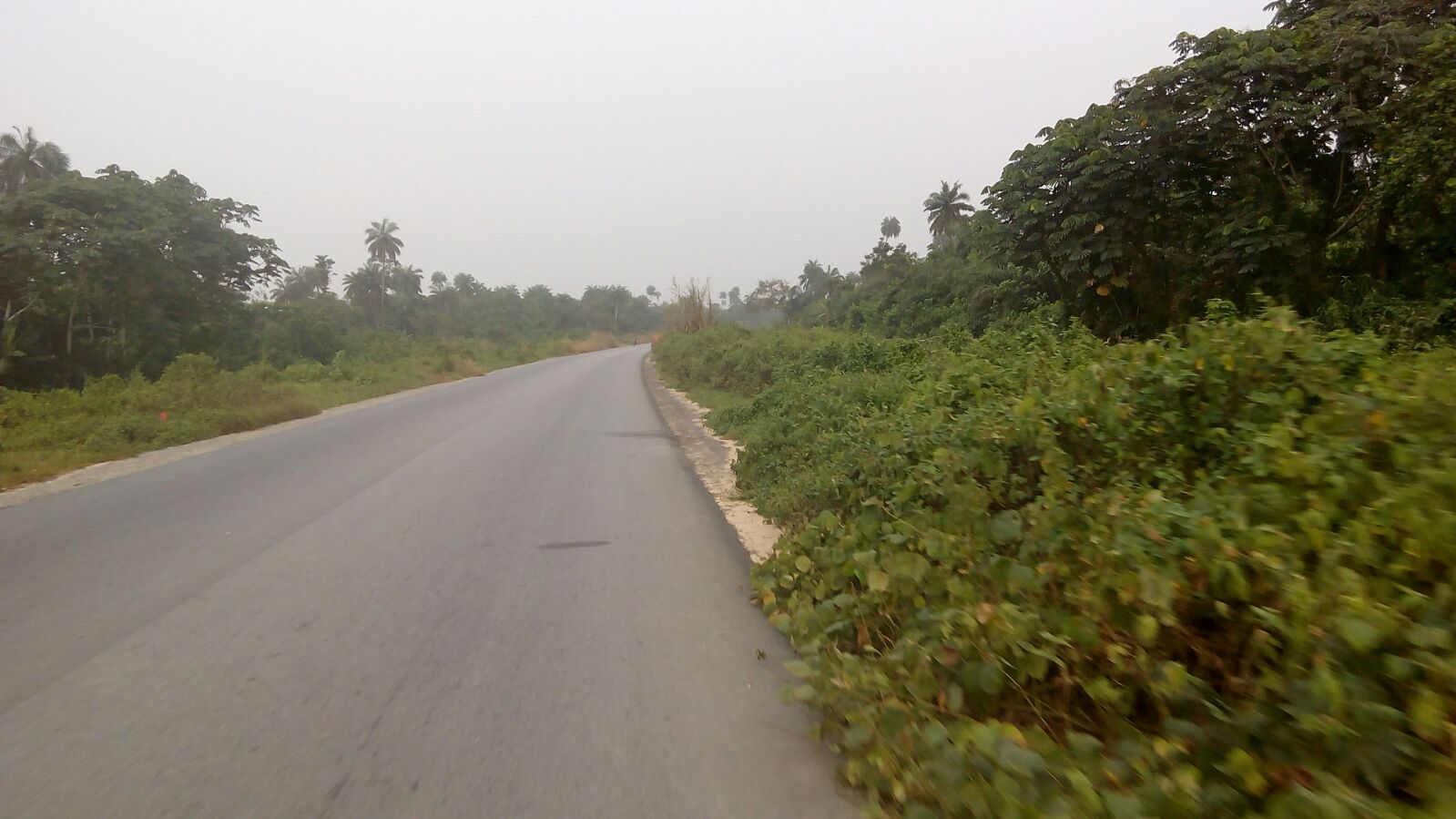
We hit Warri around 2 am. But, then, something happened. Well, something just a little scary. The driver, who had been friendly all along, suddenly changed. After combing the city for 10 minutes without finding any cab to take me to a nearby hotel, the man flew into a rage, virtually yanking me off his bus at a park around DSC Junction. There, I met a man sleeping inside a car.
Theophilus Onojeghen of The AUTHORITY – one of the kindest persons I have come across – had earlier warned me to be careful in order not to end up boarding the wrong cab. He insisted that I pass the night in his house and not go to any hotel at that odd hour. In a conversation via the phone, Onojeghen spoke to the man I met sleeping in the car and they reached an agreement that I wait till he came to pick me.
“Una no jam armed robbers for road?” the man asks. “No o!” I responded in a rather disturbed tone. Was he a robber himself?
“How una do am? Na magic? Even for Benin by-pass?” he probed further. At this point, I no longer showed interest in the chat and, luckily, he left me to be alone with my thoughts.
Advertisement
Onojeghen finally took me to his house, where I slept for barely four hours before continuing my Bayelsa sojourn.
ELECTION DAY PROPER
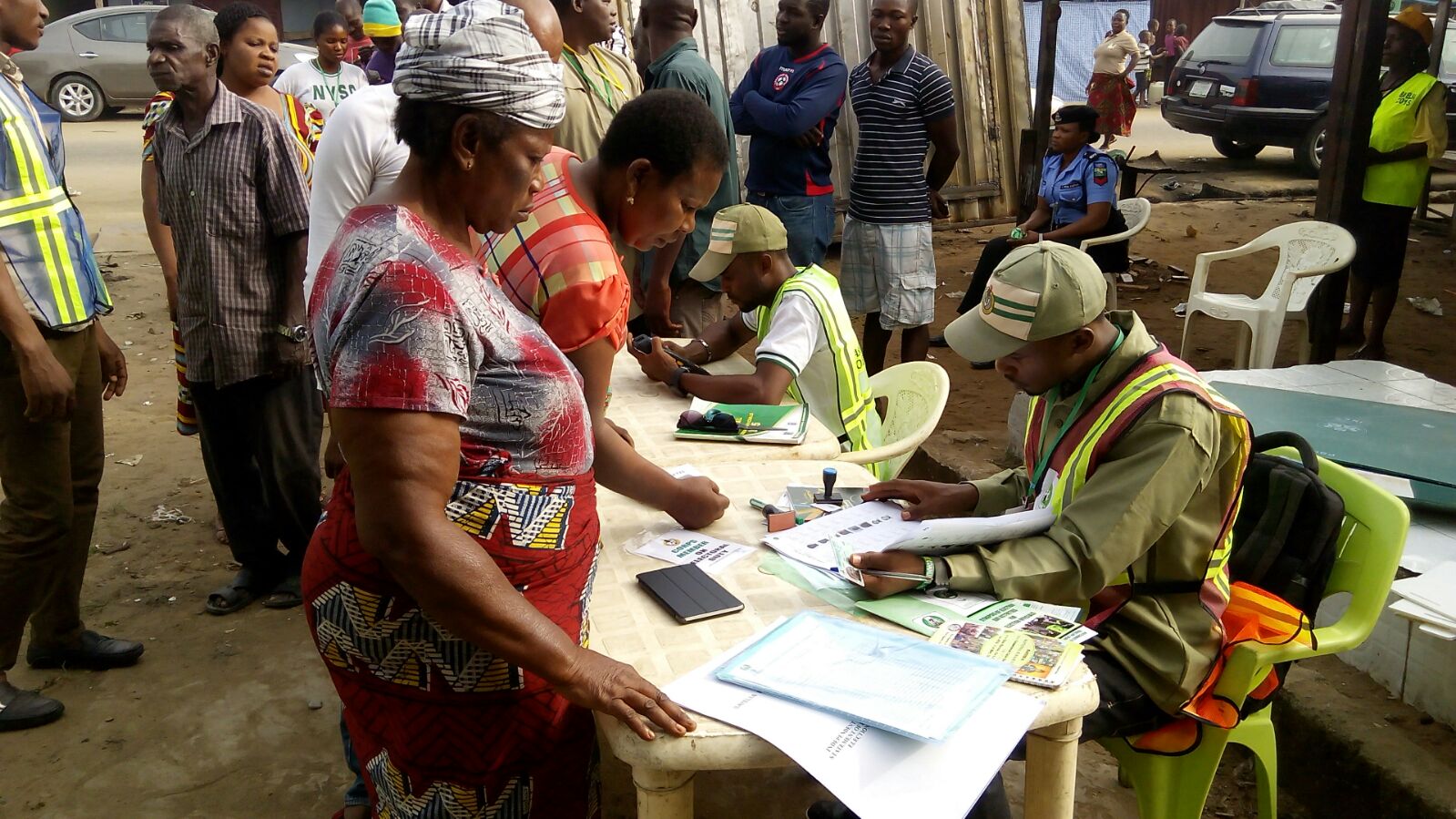
I set out around 8 am on Saturday visiting voting points around Yenagoa for the first hour before heading to Otuoke, the hometown of former president, Goodluck Jonathan. Based on my sour experience in Rivers state during the general election, I made enquiries about the safety of leaving the state capital for a nearby village. My fears were waved off, so we continued the journey.
JONATHAN SURPRISED ME
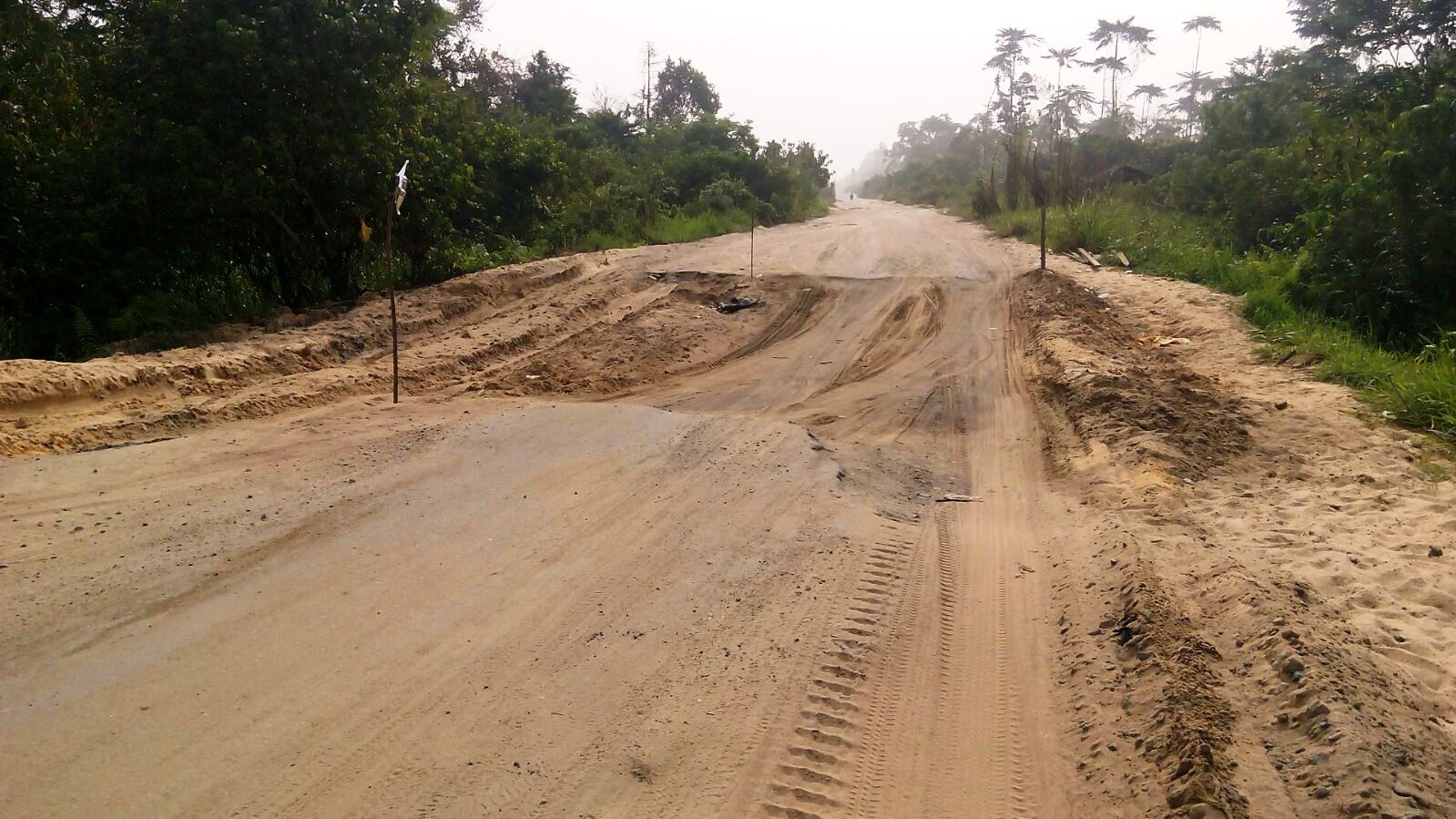
The road to Otuoke in Ogbia local government area was smooth until we veered into an untarred portion. Unceasing gallops. Innumerable rough patches. Then we got to a spot where I told the driver to stop.
“Driver,” I reminded him, “I actually mean Jonathan’s village.”
Advertisement
“Yes, we’re going there.”
Unbelievable! No wonder the man who presided over this country for five years had said he felt his people would pelt him with stones on the day he returned to the village after handing over power.
Advertisement
Jonathan goes into history as the only one to have reached unprecedented heights in Nigerian politics in a record of 16 years and no one is saying he should transform the fortunes of everyone in his village. But I think infrastructural development, at least good roads, ought not to be the worry of the people of Otuoke and its environs.
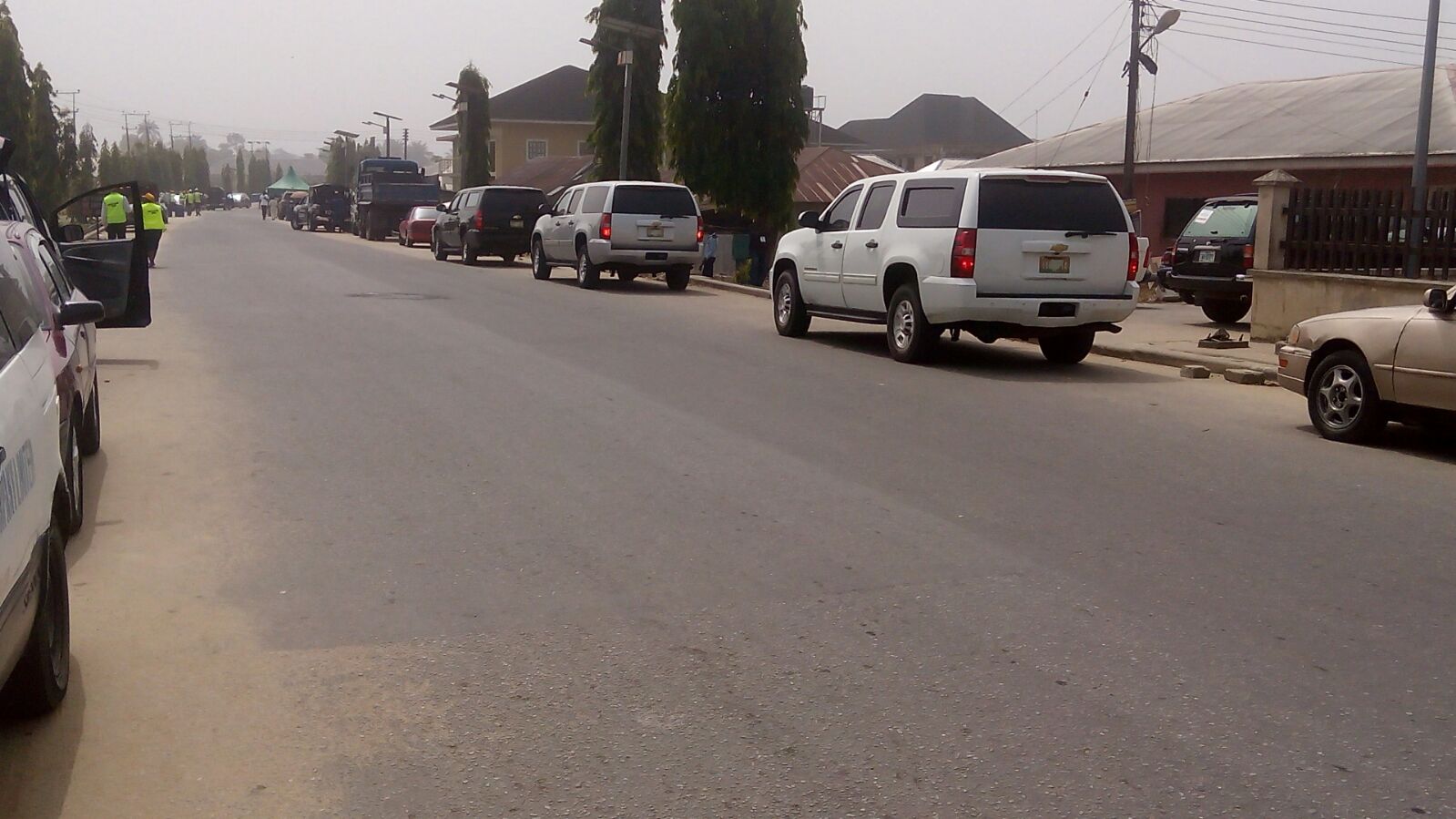
Expectedly, the best houses in the community belong to the former president’s family: Jonathan, his mother, his sister and his wife, who owns Aridolf Hotel, which has another branch in Yenagoa. Outwardly, Otuoke looked beautiful – at least the tarred road on Jonathan’s street and the beautiful Anglican church adjacent his house.
Advertisement
But take a few steps away from there and you will find tell-tale signs of abject poverty. Neighbouring Otuaba village also lacks social amenities. In fact, the major road linking both communities is right inside State School, Otuoke – Jonathan’s primary school. To create a passage for people, the fence of the school was broken at the Otuaba end to accommodate the fixing of a small gate.
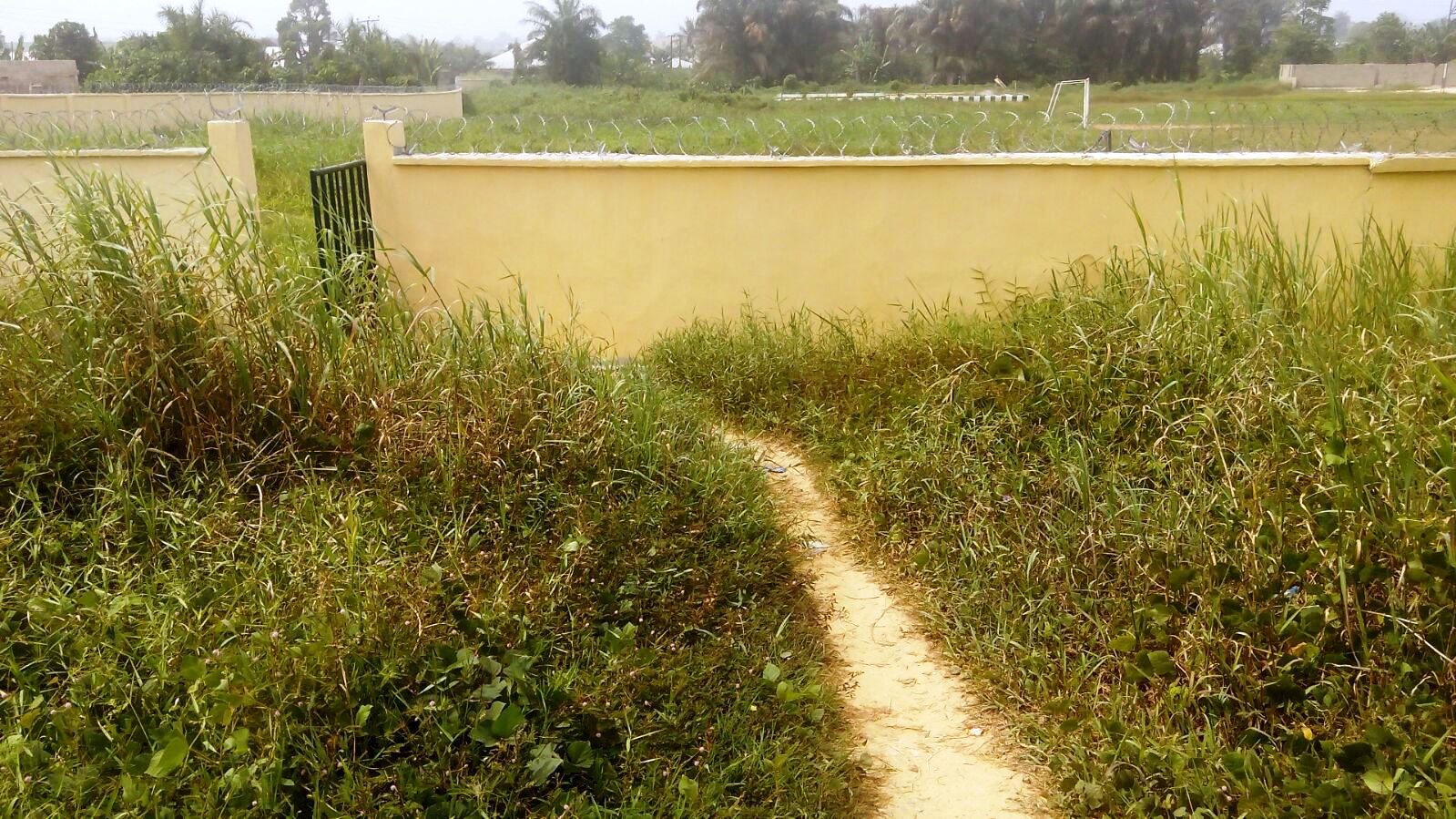
On my way to State Secondary School, which had all the 10 polling units in Otuaba, the comment of a teenage girl caught my attention.
Advertisement
“Make una bring money eh! Na so una dey do! After election, nothing again. No light, no water, no road. Na so all of una dey do. So, so, lie. Bring money if una want make we vote.”
I wanted to ask some questions but something in me decided otherwise.
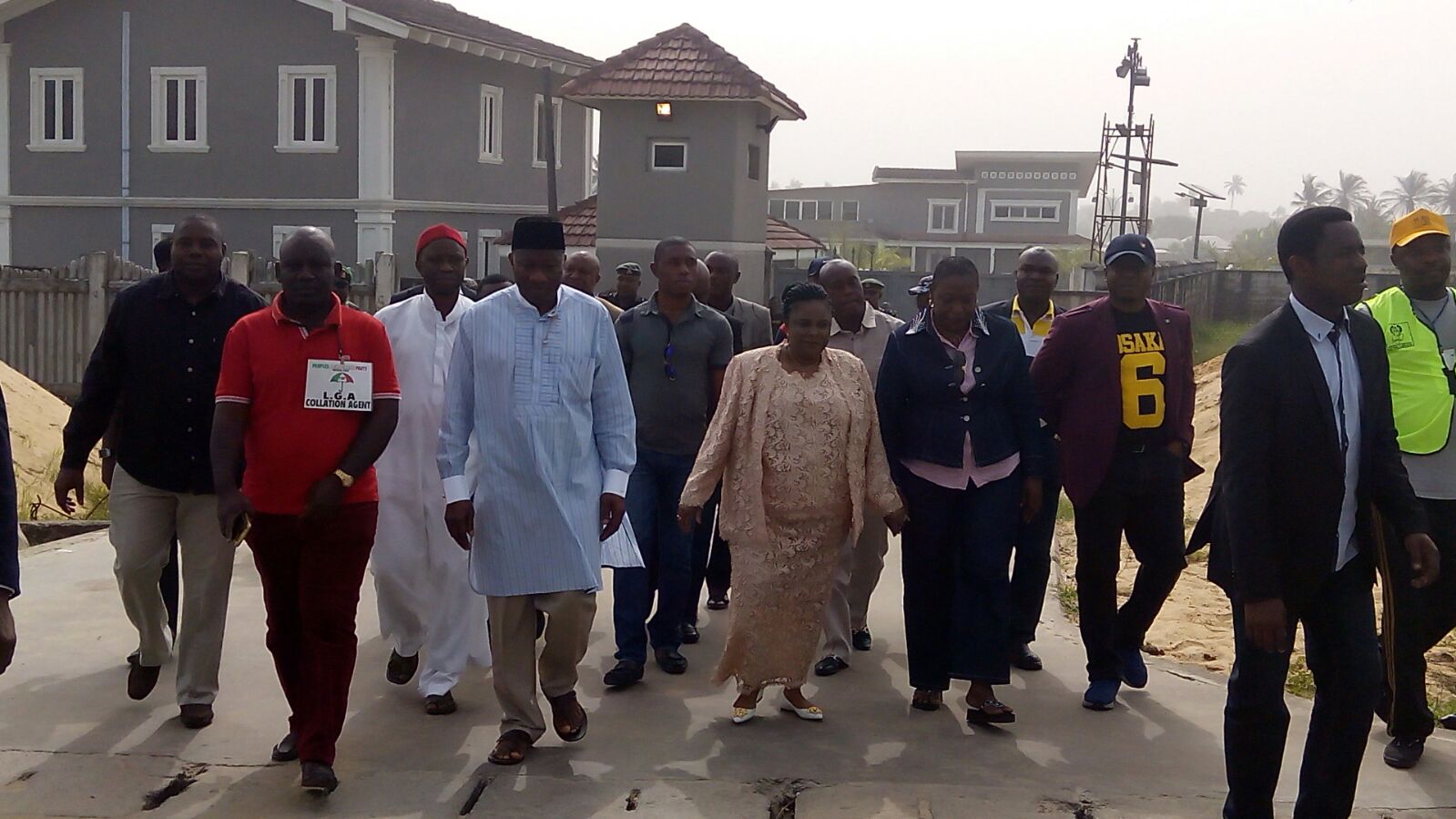
Only a few aides accompanied Jonathan, his wife, mother and his elder sister to Polling Unit 039, Ward 13, Otazi playing ground, right in front of his mother’s house, where they all voted. After casting his ballot, he addressed the media. Well, I don’t know why my eyes strayed to his feet, but I saw his toes through the leather sandals he was wearing. I got distracted that moment and I said to myself: There is nothing spectacular about the five fingers on this man’s feet, the little toe even looked as rough as mine”
Pardon my immodesty, but that’s the closest I have come to a man who once occupied the country’s most ‘exalted’ office.
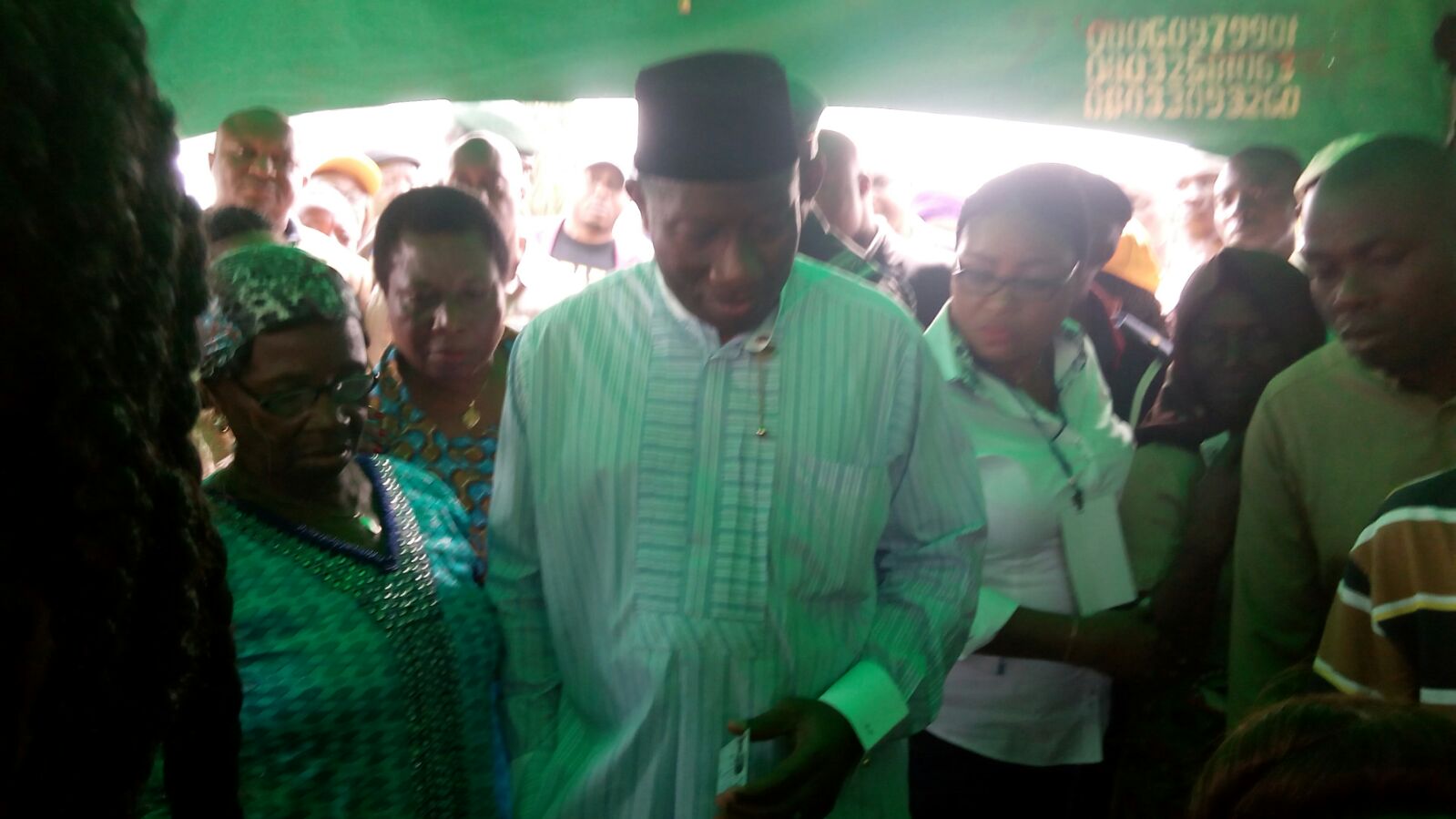
Responding to a question on security, Jonathan touched that emotional part of me: “I have not been getting full briefings. You know I am no longer the president; the reports I used to get then are no more coming, but I believe the election is going on smoothly. I urge Bayelsans to conduct themselves peacefully.”
Nothing lasts forever. Power is no doubt transient! A lesson for all.
NO ONE WANTS ME IN THE CREEKS
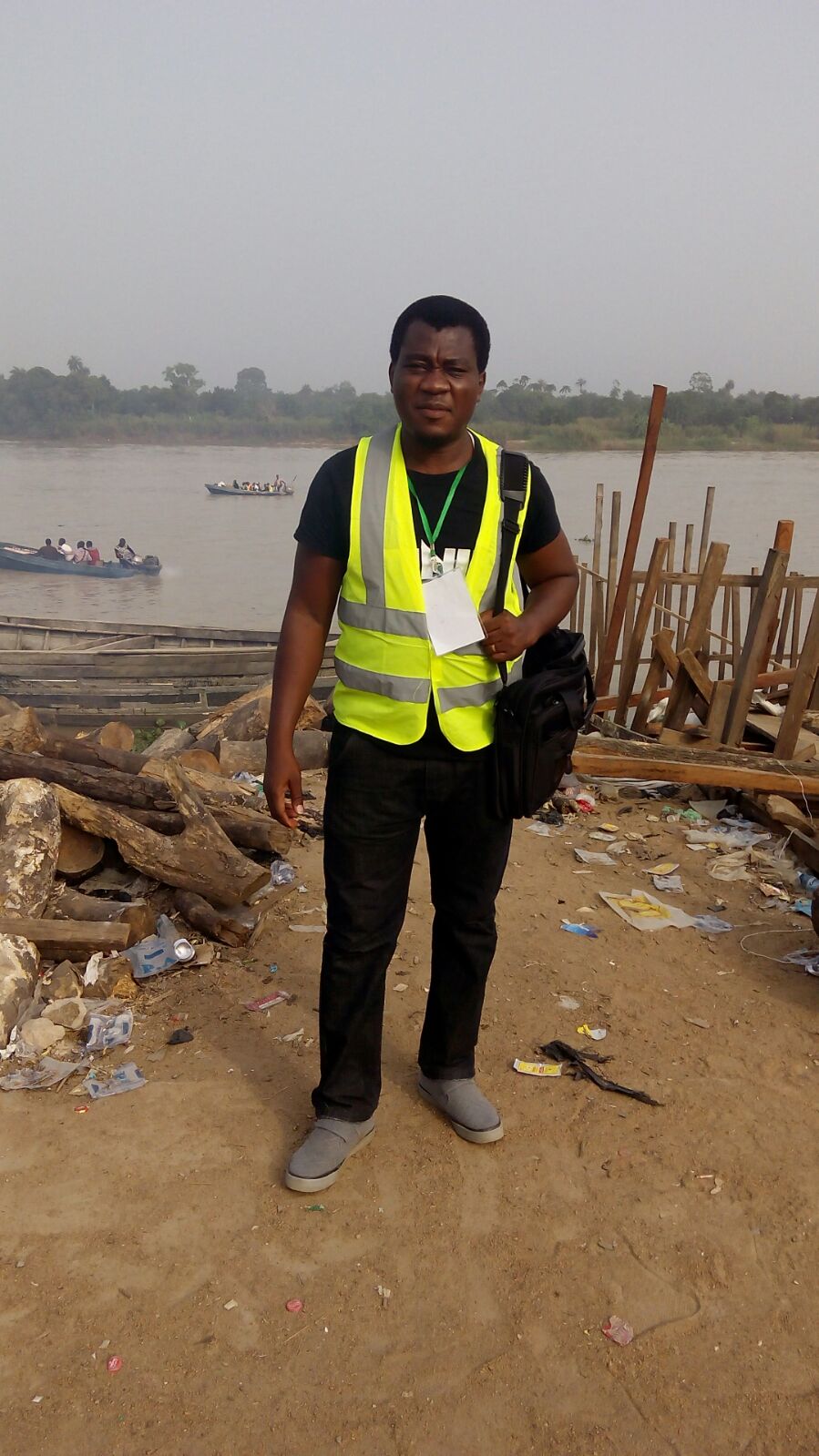
No encouragement to proceed to the creek. Motorcyclists, tricycle operators and residents of Anyama community, where those heading to that destination board boats, told me I was taking the decision at my own risk. But I wouldn’t just opt out. And I didn’t know why. The presence of many DSS officials at the river bank brought a sigh of relief and I quickly approached one of them who looked friendly.
“Officer, good morning. I am a journalist trying to cover the election on the other side. What…?” Cutting me off, he said: “We are also strangers here.” He walked away.
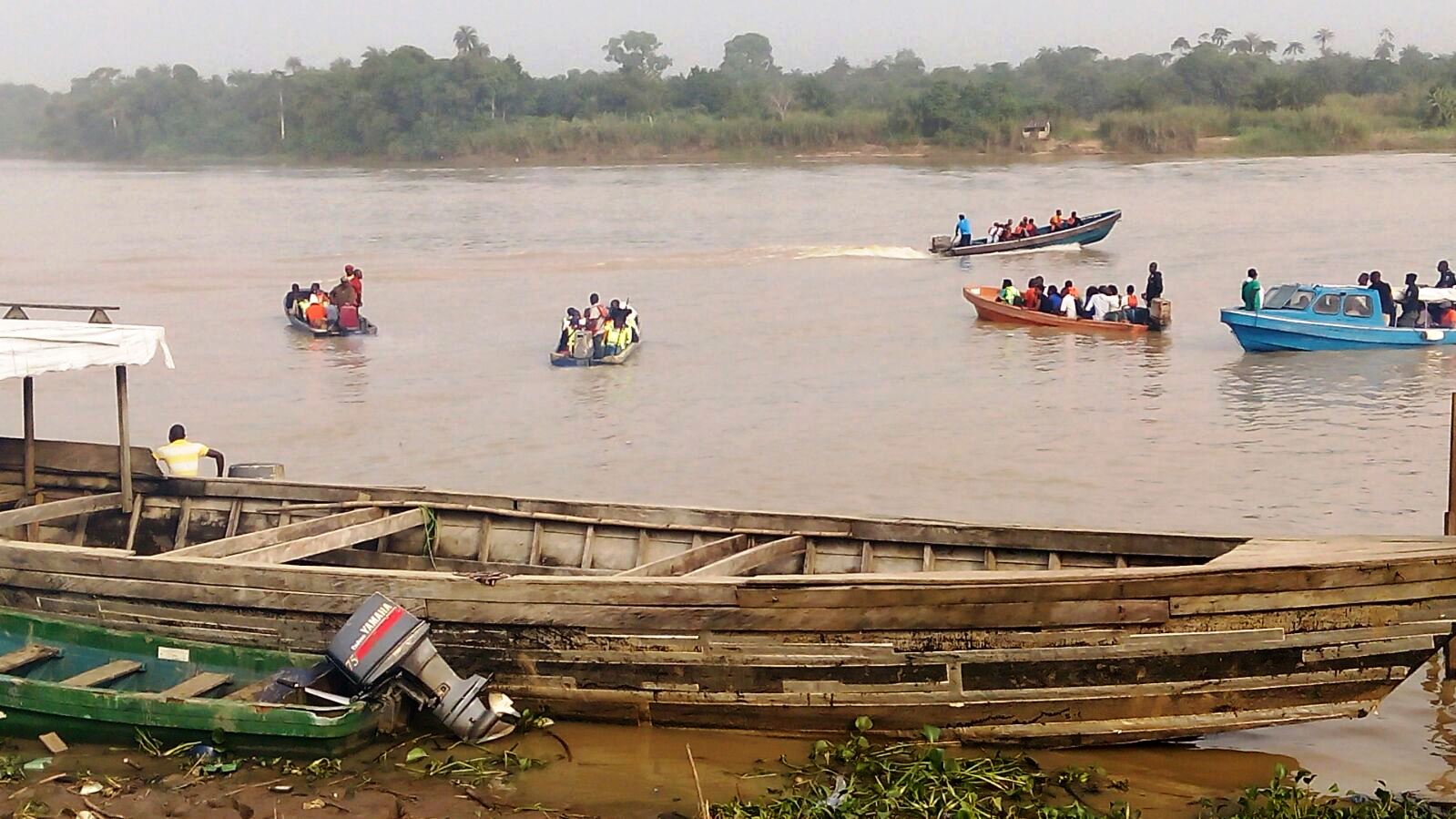
Yet that wasn’t enough to make me change my mind, even though I was now weighing the options heavily. I saw a group of ad hoc staff, mainly females, discussing in cycles. From my little distance, I followed their conversations. They were contemplating whether to cross over or not. Suddenly, one of them strikes a conversation with me. She had returned from the creek a day earlier and I started bombarding her with questions. The conversation was truly helpful.
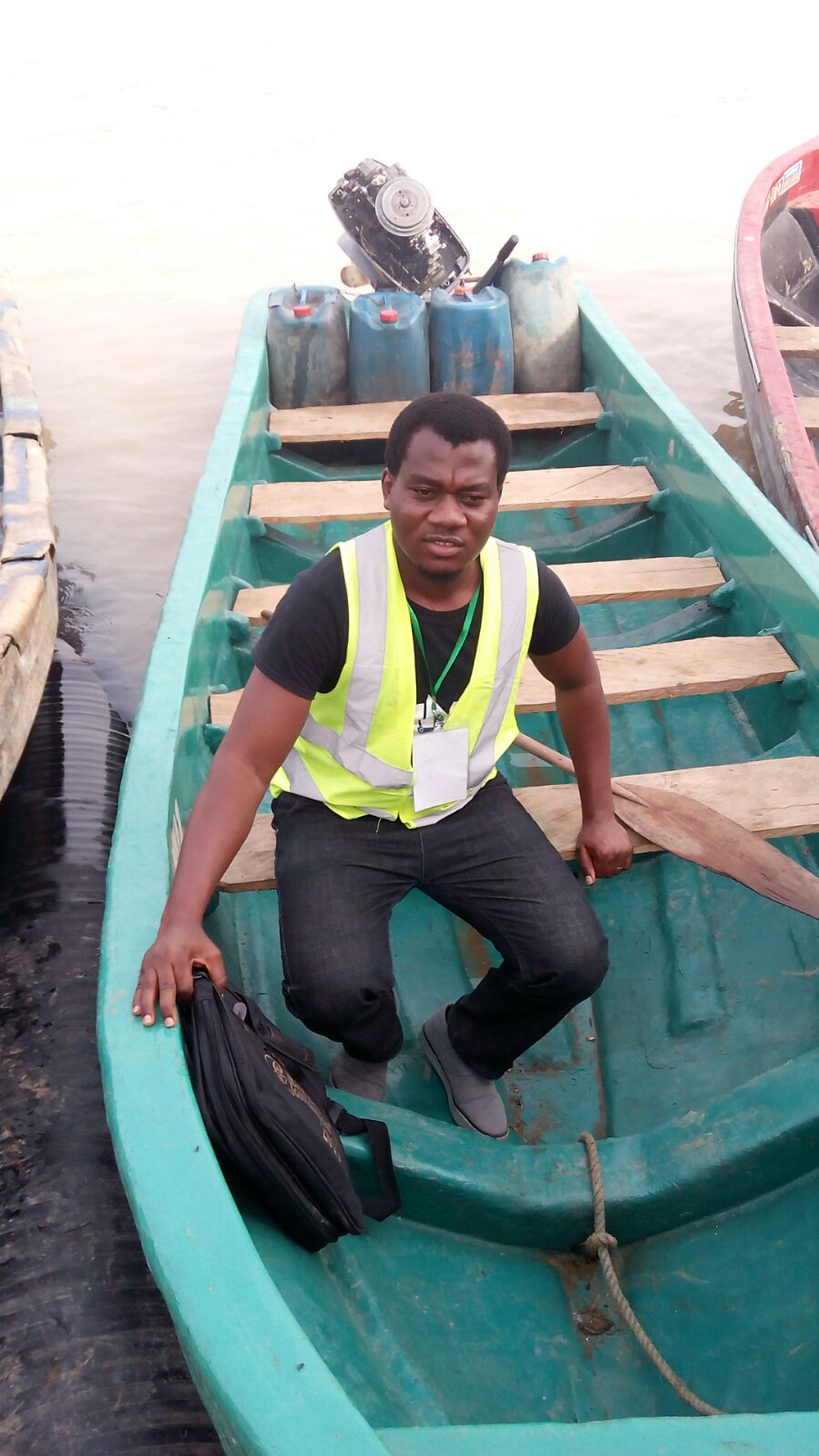
I discovered that a native of Oporoma, headquarters of Southern Ijaw, who had earlier ruled out going to the village while we were talking in the cab from Swale to Anyama, had already boarded a boat.
Looking towards my direction, he asked: “Guy, you still wan go?” I nodded in the affirmative, as I joined the boat.
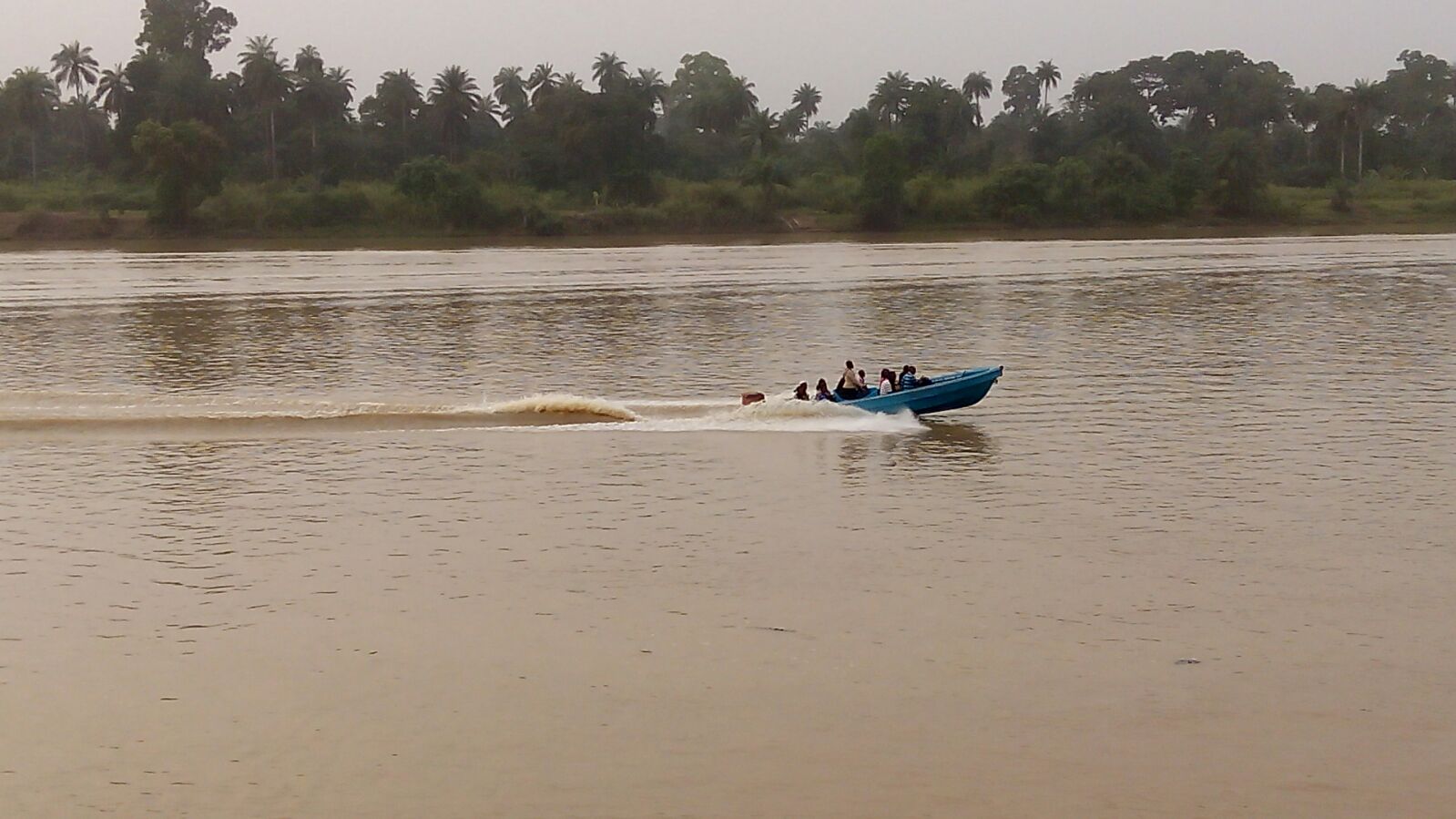
Progress – I later found out his name – paid my boat fare on my first trip across the militants’ route. At intervals, officials of the Joint Task Force (JTF) stopped our boats and we all raised our hands above our heads. Whatever that means!
At another point, the operator slowed down the boat, waiting for the one conveying security personnel to go ahead because of suspicious movement on the waters. At last, we arrived Oporoma, where four people were killed the day before, even though the police are still denying the incident.
POLICE AND FALSE ASSURANCES
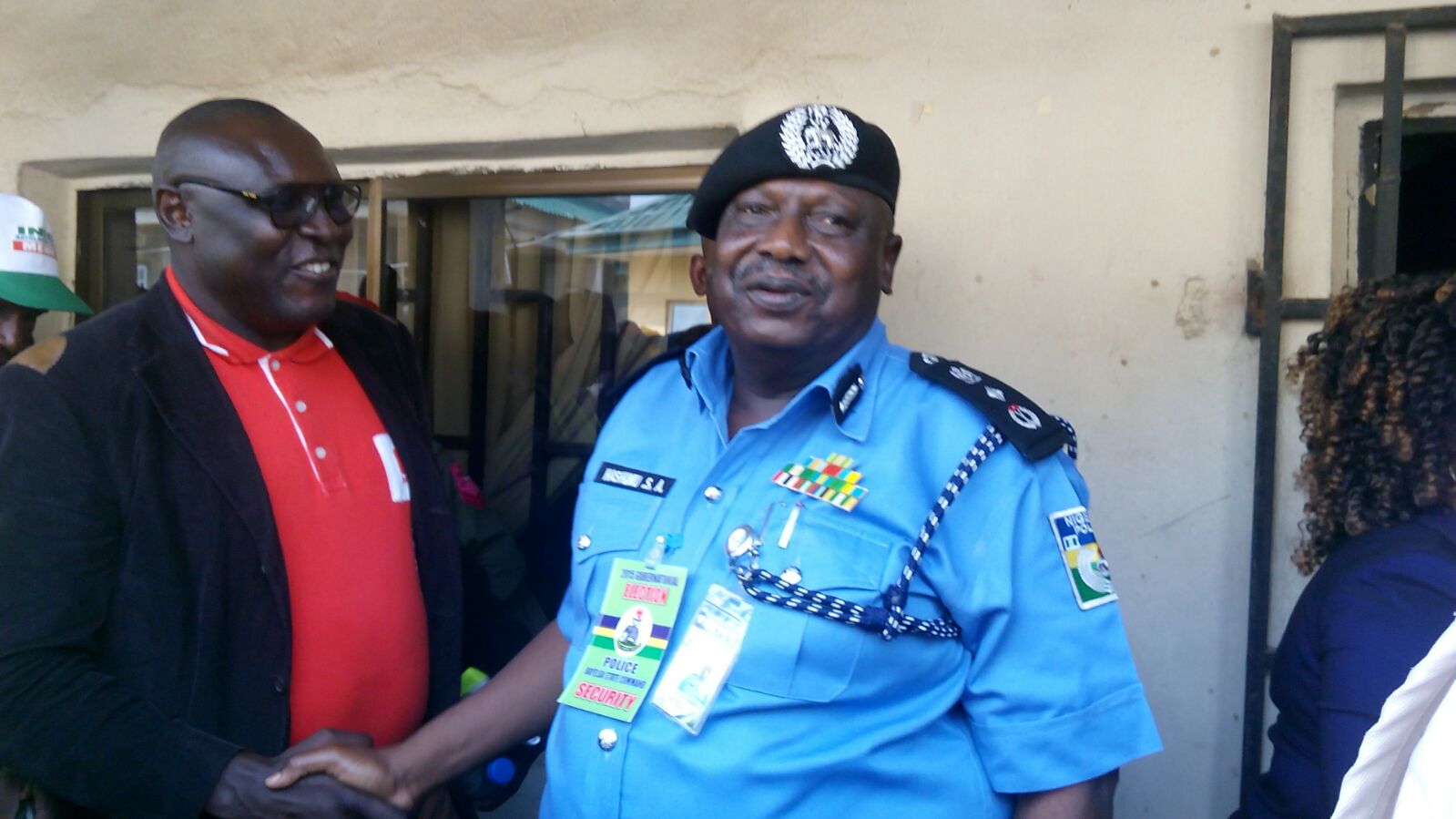
Addressing the media on the day the election in Southern Ijaw was cancelled, DIG Hashimu Argungun, who had earlier issued a statement to debunk the reports of violence in Oporoma, challenged “any journalist or anybody who has seen any corpse to prove him wrong by bringing it forward”.
He was so sure, perhaps relying on briefing from his men or just in the habit of giving the misleading impression that the police are on top of their duties. Well, all those who witnessed the incident had no qualms disagreeing with the ‘oga at the top’.
Different INEC ad hoc staff confirmed that the gunmen, who were supporters of the two leading parties, asked them to remain at the commission’s office because they were not out to harm them. The duel, I understood, lasted several hours.
Yet the police see things differently, maybe because ‘the police is your friend’.
YOUTHS DIVIDED ALONG PARTY LINES
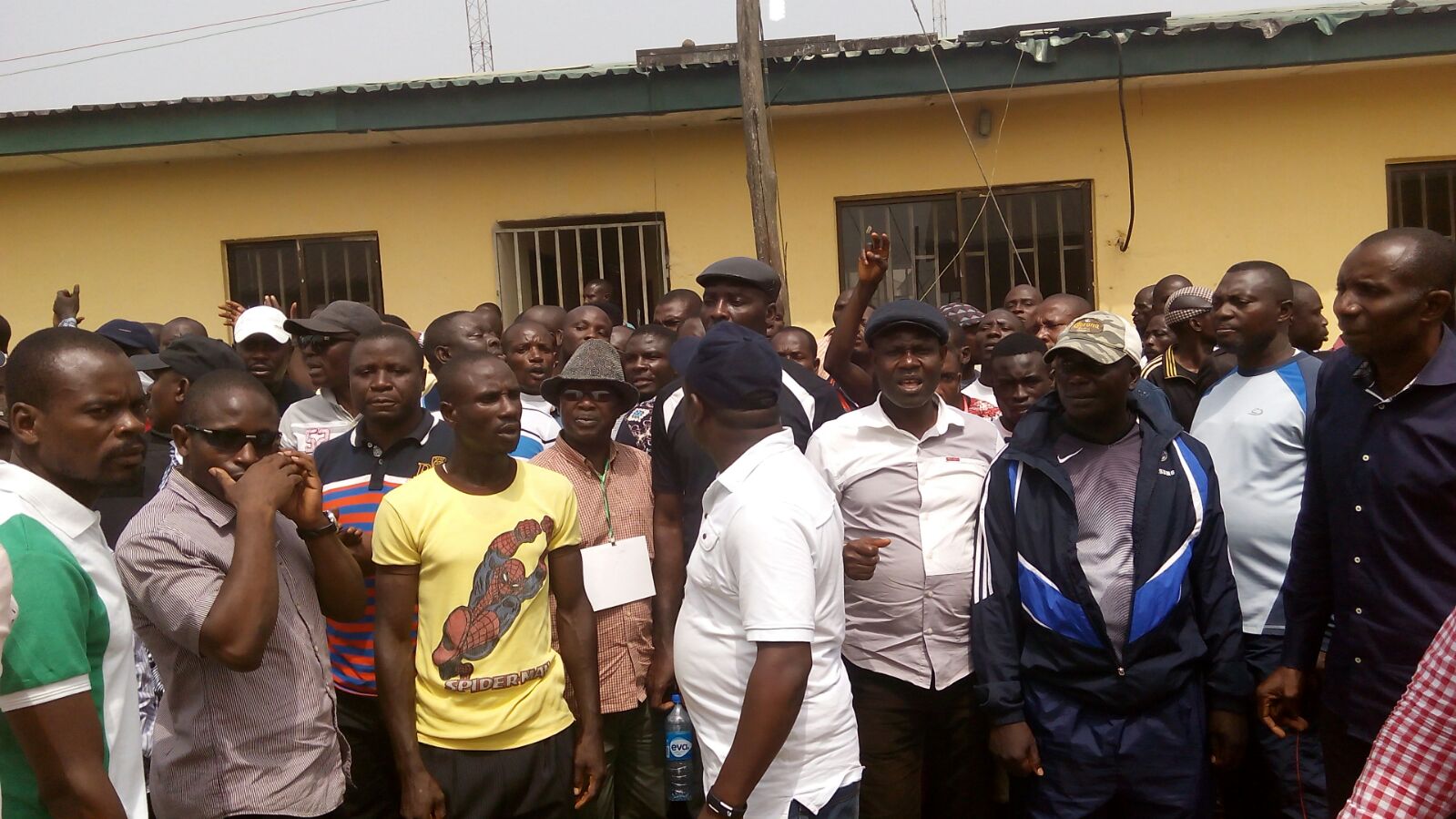
At Oporoma, a typical rural community with no sign of development apart from electricity, rampaging youths took over virtually everywhere. My heart froze at different intervals. What if these guys seize me? I had to keep changing routes, knowing nowhere. At last, I got to the INEC office in that village, where I found few colleagues. Well-armed security personnel surrounded all strategic points at INEC office. But this did not scare the youths who moved freely, though they maintained a reasonable distance from the place electoral materials were kept. The APC wanted the election to go on, the PDP didn’t and so the argument went back and forth.
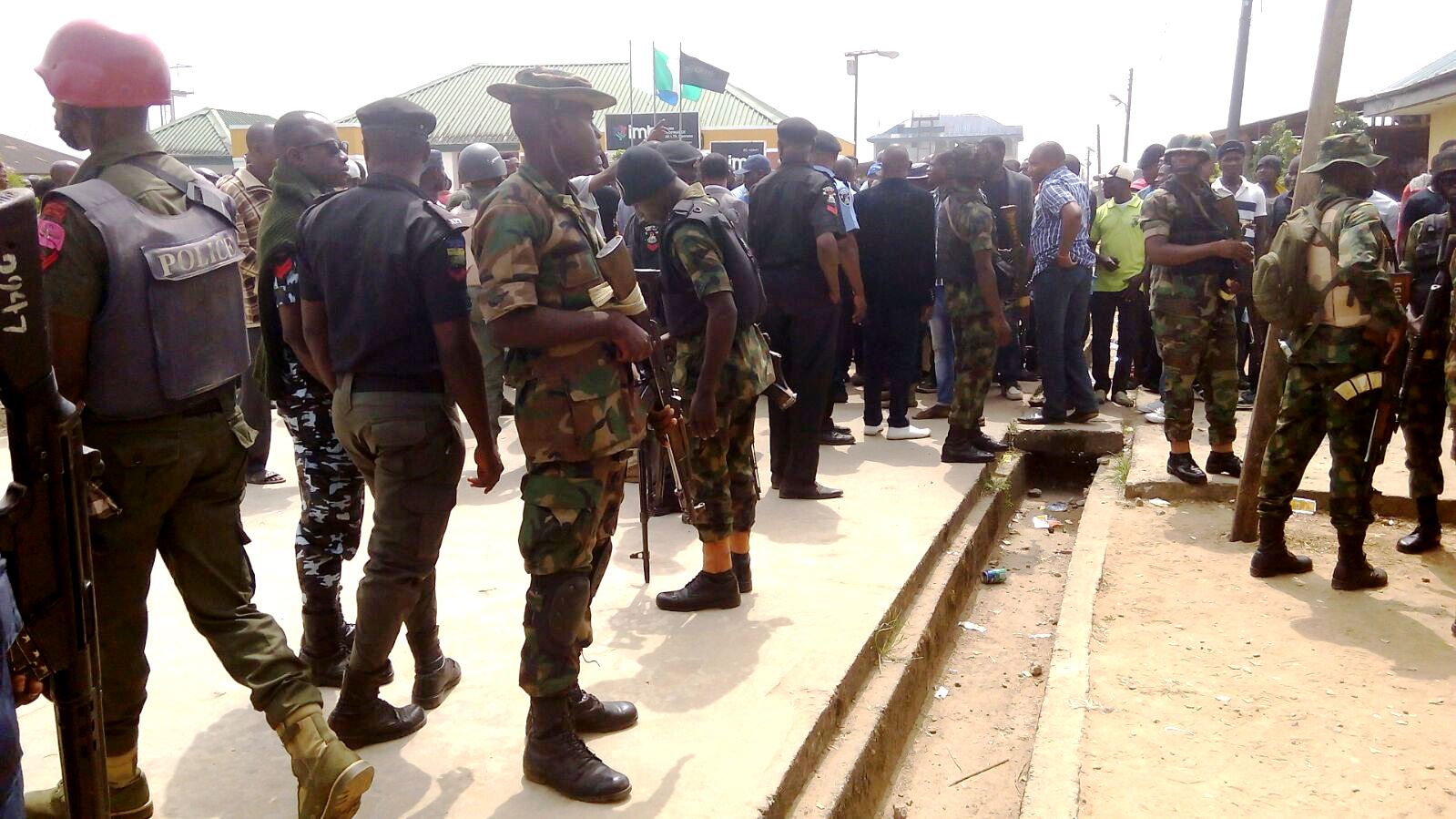
After hours of demonstrations, a top ranking army officer informed the crowd that the election would still hold. That moment, the PDP supporters started chanting: “We are not safe o! We are not safe!”
Gradually, their enthusiasm dwindled, apparently because they weren’t getting the required attention. But their campaign regained momentum when the corps members started moving electoral materials. This time around they adjusted their lyrics: “You are not safe o! You are not safe! Corpers! You are not safe!”
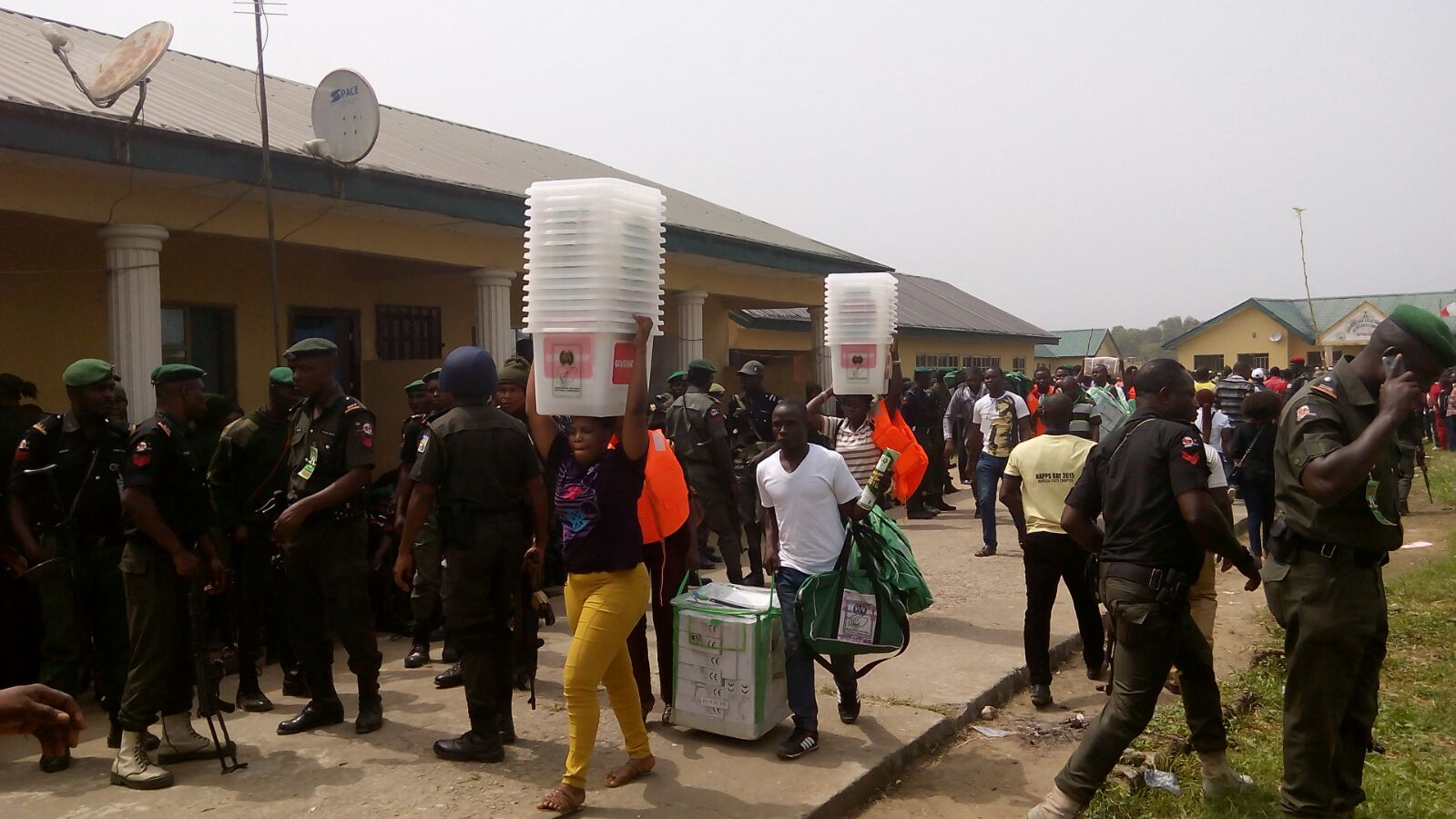
I overhead one of the ad hoc staff telling her colleague that the security men were capable of wading off any form of attack. I’m sure that she would have known better by now.
ENCOUNTER WITH MILITANTS
About 30 young men wearing white Tshirts with the inscription ‘PEACE’ arrived a mini-stadium where people were seated. All of a sudden, there was silence in the arena, which had been bubbling with activities all along. The guys sat down quietly, without saying anything to anyone. I tried to take pictures and a young man leaning on a nearby tree said: “You no get brain? Who be you?” I immediately ran to another corner.
Moments later, I found Progress and inquired about the men in white. “Na baba them be that,” telling me that it was actually because of them that the boat operator slowed the journey while we were coming. That moment, I recalled sighting their boat far off.
Carefully, he identified different groups in the crowd. Lord have mercy, so I had been in the midst of the very ‘monsters’ I dreaded. I was almost shivering but the manliness in me took charge.
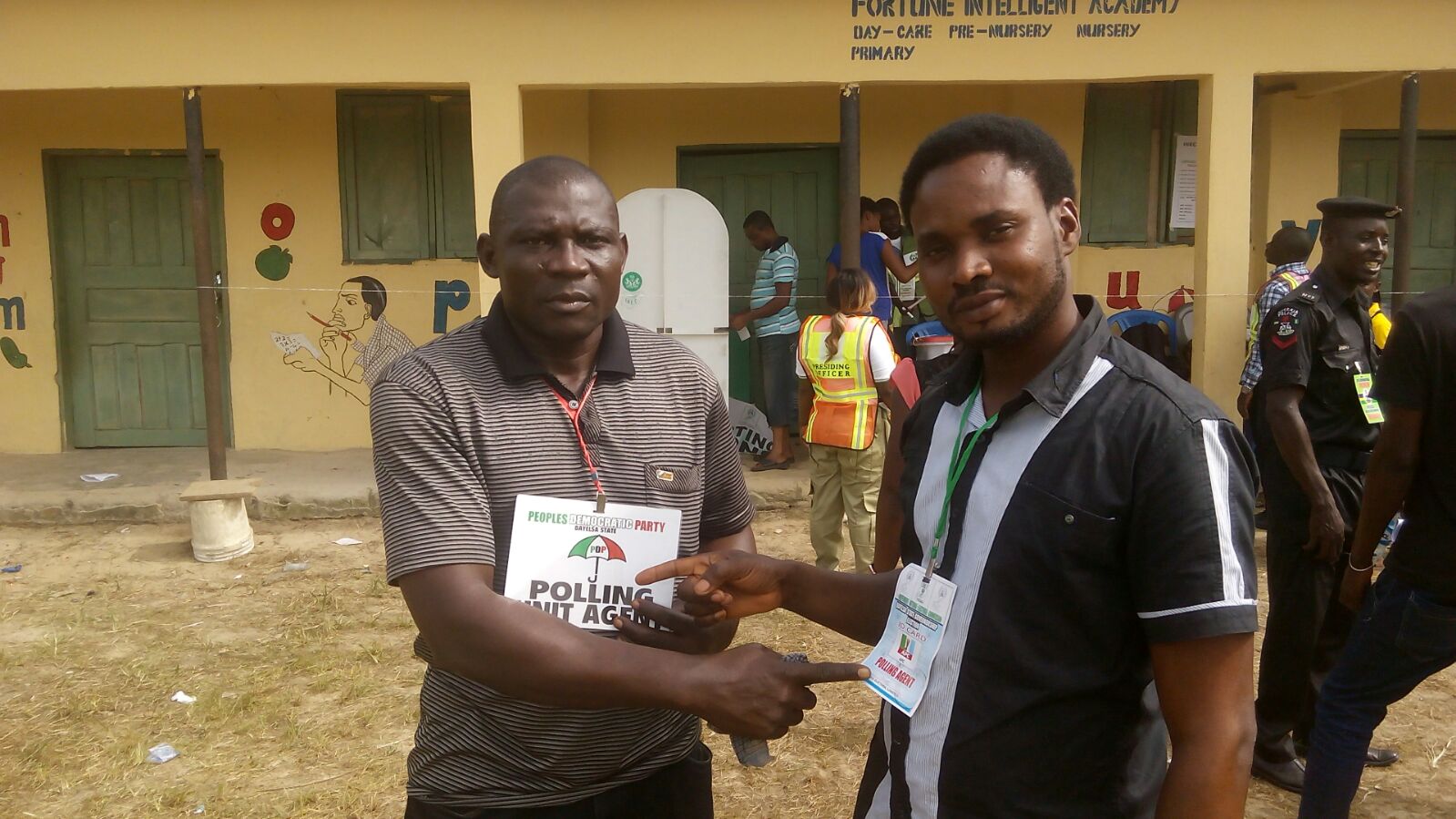
One hunk of a guy kept making frantic moves. He wore a denim jean, fitted shirt, with a black fez cap. Three armed soldiers followed him around for over three hours that he spent in the community. At times, he would move towards INEC office, other times he would disappear, next thing one would see him holding meetings and often he spoke on phone. I later realised that he was the younger brother of a notable militant leader.
ESCAPE FROM KIDNAP
I wouldn’t return to Yenagoa without visiting some creeks, so I left for a few and suddenly returned to Oporoma where I took a boat back to Anyama. That decision was my best in Bayelsa, because some hours later, one of the persons who went further phoned to say that not long after my departure, militants attacked their boat, hijacked all the electoral materials, commanded the party agents to follow them and detained the INEC officials at a community called Aboin.
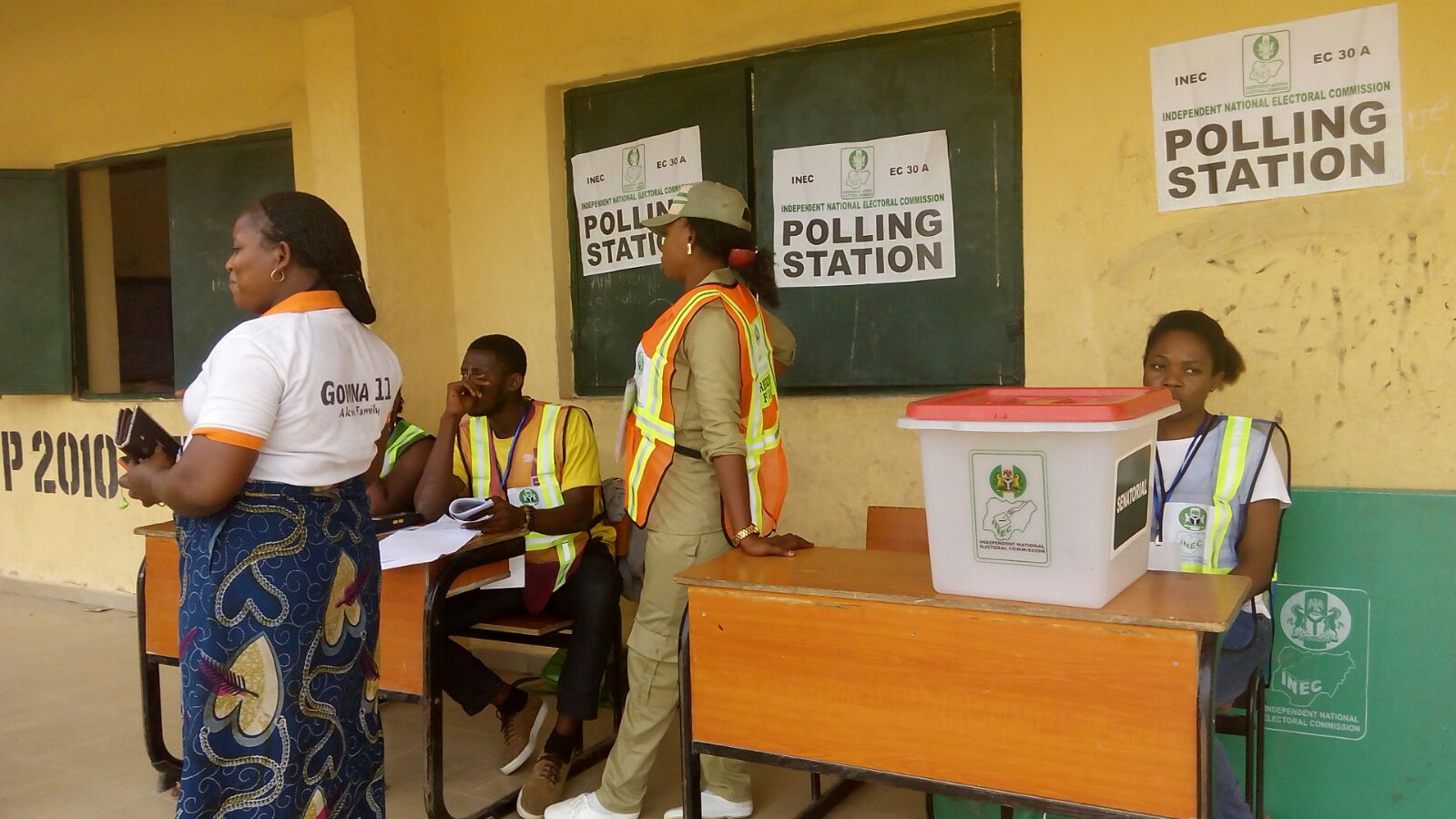
“Eewoo, what of the policemen wey follow una?” I tried to find out. “Dem fit cough? My guy, even IG know say civilian generals full for Bayelsa here.”
On my way back to the state capital, I met Austin who picked interest in me after I mistakenly spilled water on him while trying to have a feel of the water as the boat cruised on high speed. We spoke on and on, and he told me a lot of things about the militants.
Austin told me that some persons who actually dressed as electoral observers were militants and my heart froze. Since then, I decided to be more careful with the so-called observers.
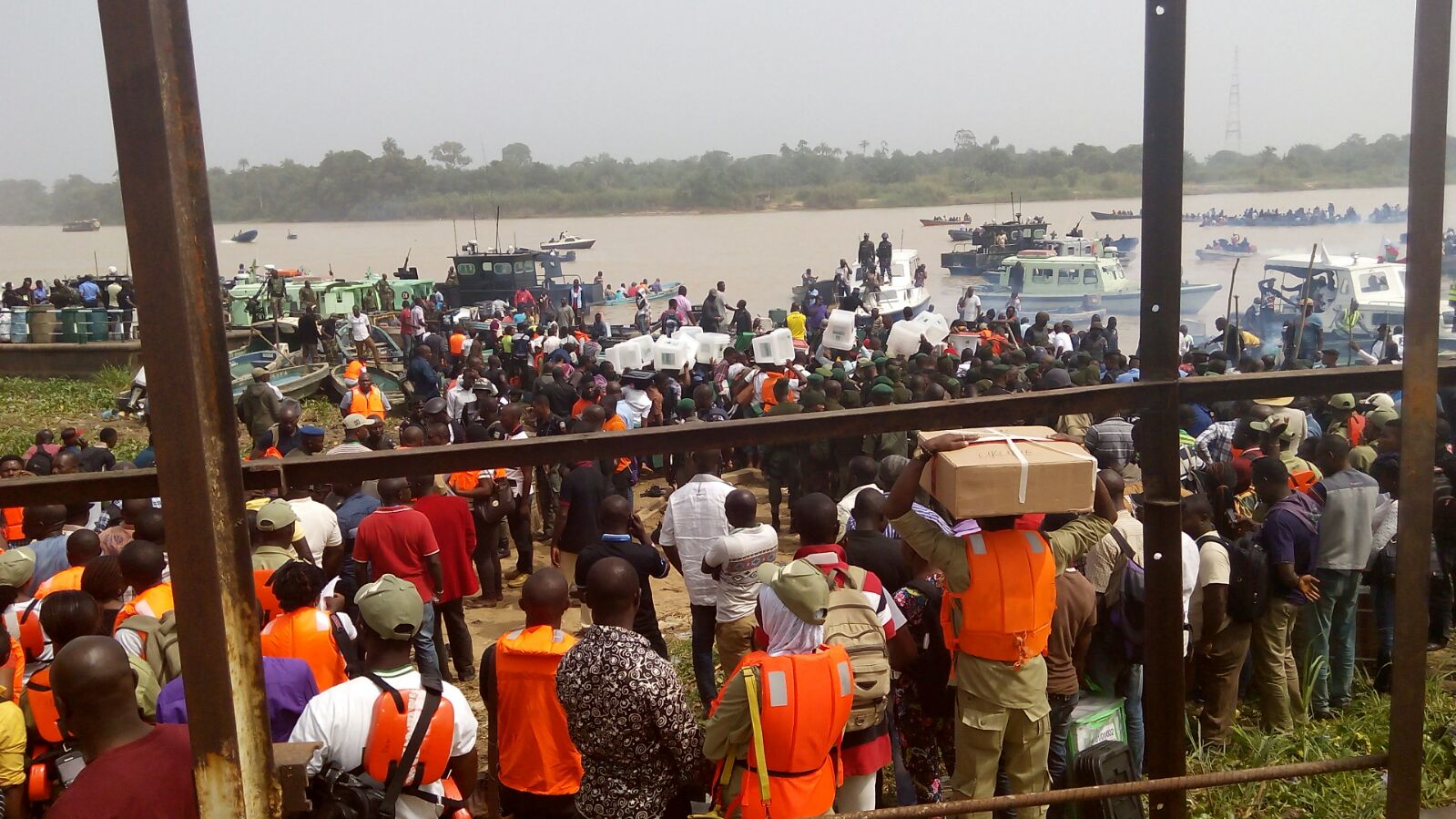
Trying to convince me of his close relationship with the creek manors, he reached for his phone where he showed me pictures he took with some popular militant figures. He even wanted to arrange a meeting with some of them but not me or perhaps some other time. So influential was he that he wanted me to meet one of the state commissioners who was at Anyama, but again I declined.
THE COLD-BLOOD MURDERERS
At the collation centre, a colleague told me of the cruel manner in which the body of a man was dumped inside a river in Sagbama local government. What she found amazing was how his murderers moved on after such ungodly act. “E don sink,” she quoted one of them as saying, before going into another session of booze.
One of the ad hoc staff who was abducted by militants narrated how police officers were assaulted in a riverine community. The clash at Oporoma also left an unspecified number dead.
BIRTHRIGHT FOR PORRIDGE
A corps member who worked at Ologoibiri community said a particular party gave N57,000 to each of them, numbering 100. No money, no votes, women were found singing. I overhead a staff of the government house who gave me a lift from INEC office to the collation centre, say he was given N500,000 for the election, unlike the N400,000 he got for that of Kogi state. As usual, some ‘smart’ colleagues also had their way. There were different reports of people absconding with money they received from politicians to influence voters.
“Una don see ward leader?” a middle-age man asks at his polling unit, which was few miles from the Samson Siaisia Sport Complex in Yenagoa?
“Up till now?” he goes further after learning the man was still at large. “Make we dey see how dey go take win for this ward.”
For as little as N2,000, people sold their mandate. At a polling unit in Elebele community in Ogbia local government it was competition between the two leading parties; one started by doling out N2,000, the other increased by N1,000. Realising that the voters were rushing to the higher side, the other party decided to make it N3,000 in order to match the strength of its counterpart but again the other side added N1,000 and so they continued until they stopped at N7,000 with a difference of N1,000 between them.
BAYELSA NOT BAD AS YOU THINK
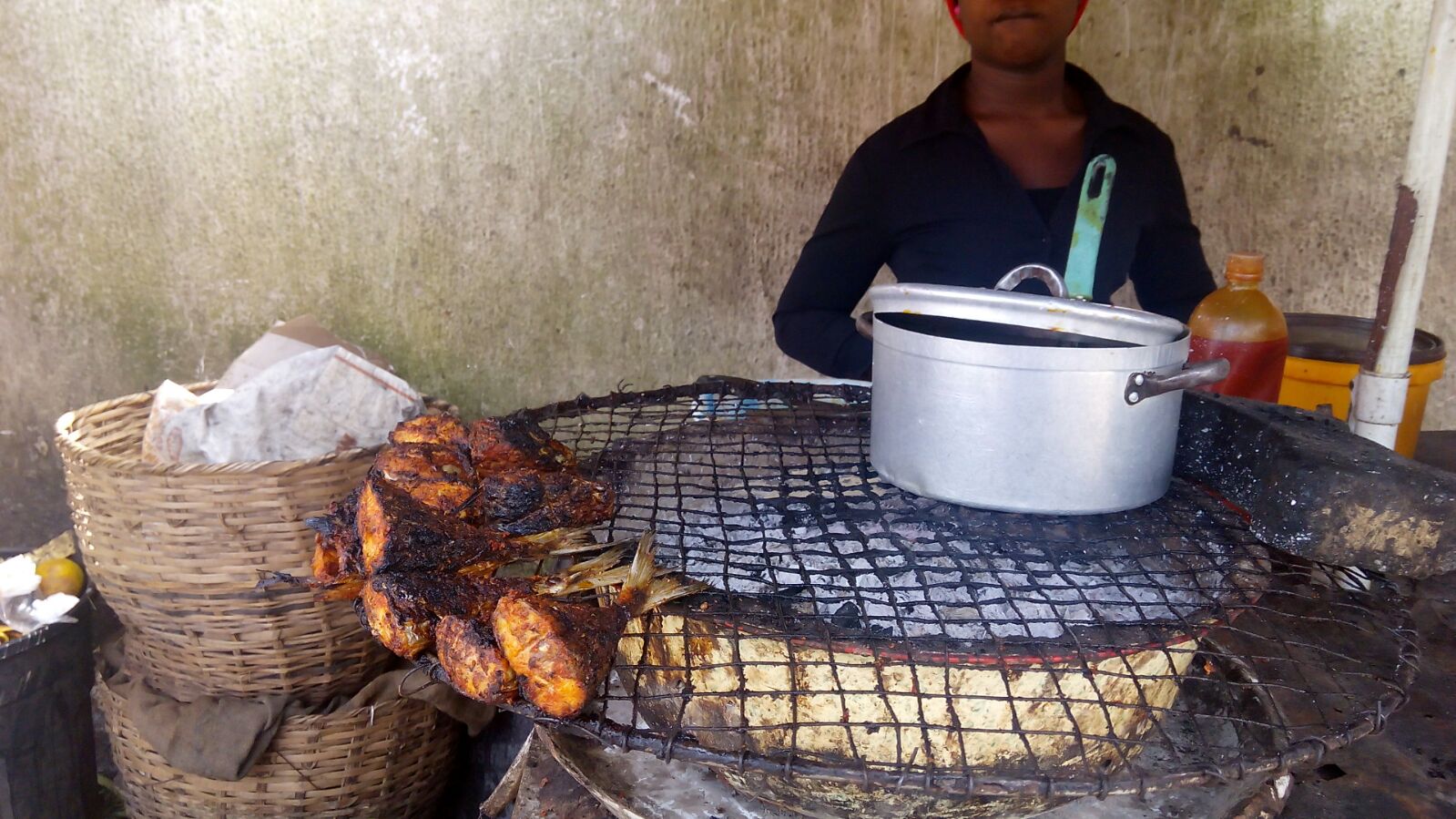
Years back, a neighbour told me he was relocating to Yenagoa and I wondered what informed the decision. How will he cope in the midst of the marauding kidnappers? But the four days I spent in the state reshaped my thought pattern in that regard.
I have lost count of the number of times that I heard people communicate in Yoruba language. Igbos were among the tricycle operators scattered across Yenagoa; they also operate restaurants and owned shops by the roadside.
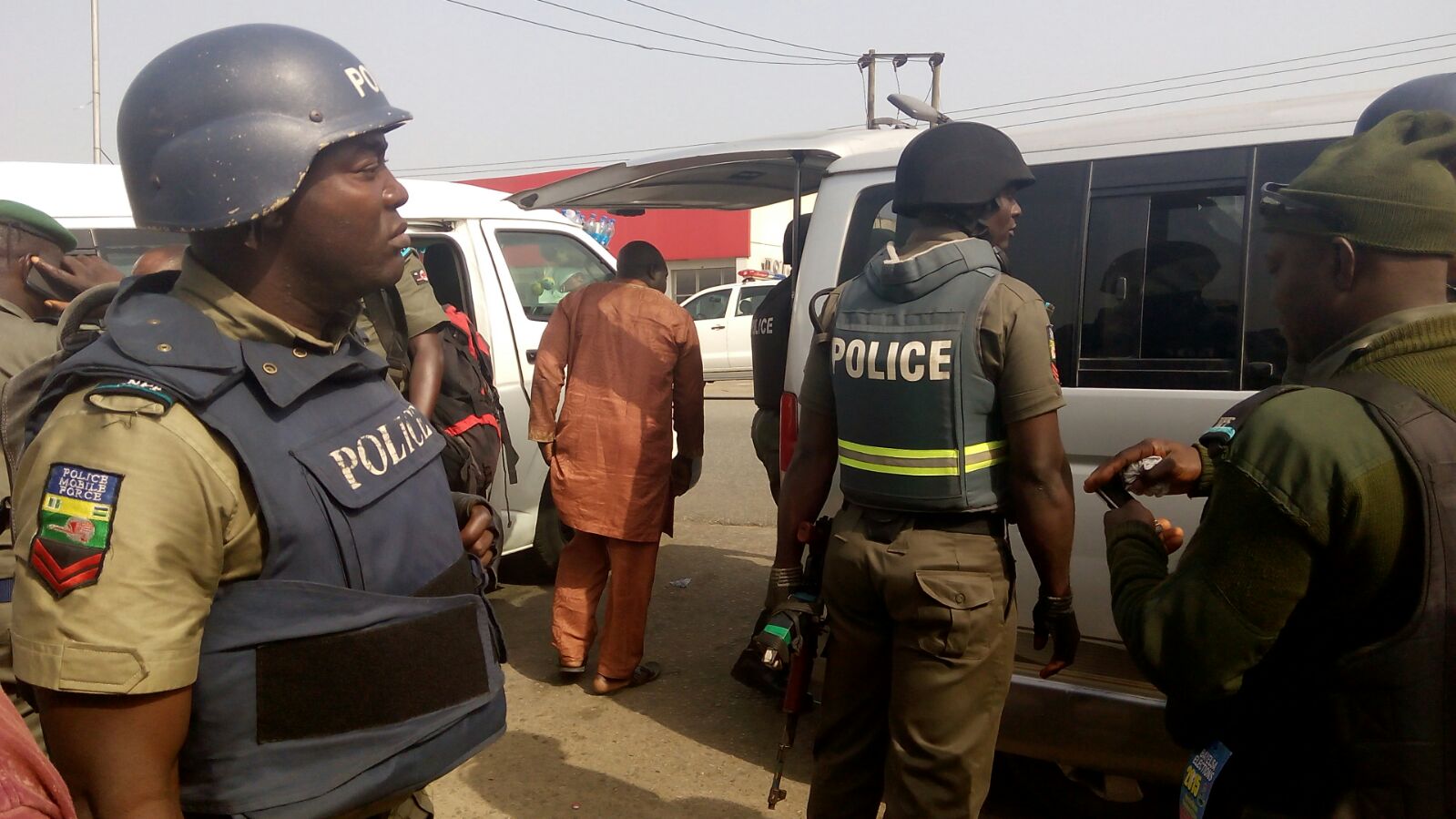
I met several Hausas in Oporoma and the only person who sells recharge card at the headquarters of Southern Ijaw is Yoruba. Toda Hotel, where I lodged, is owned by an Igala man from Kogi.
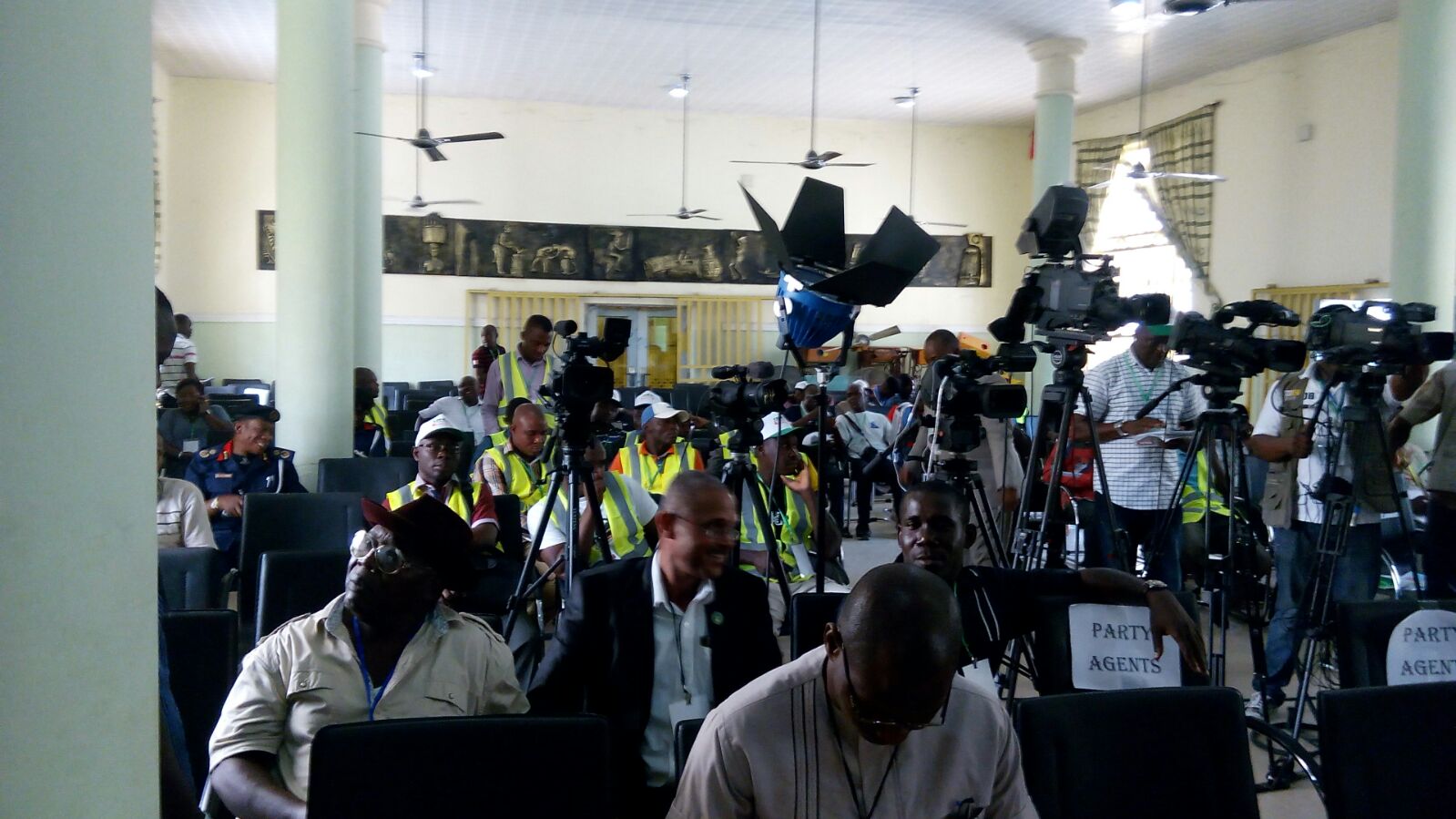
The restaurant I patronised at Elebele community is run by an Ibibio family from Akwa Ibom state. Talk about Bayelsa being a home for all. The woman, whom I bought roasted fish and plantain from, in Yenagoa is not from the state.
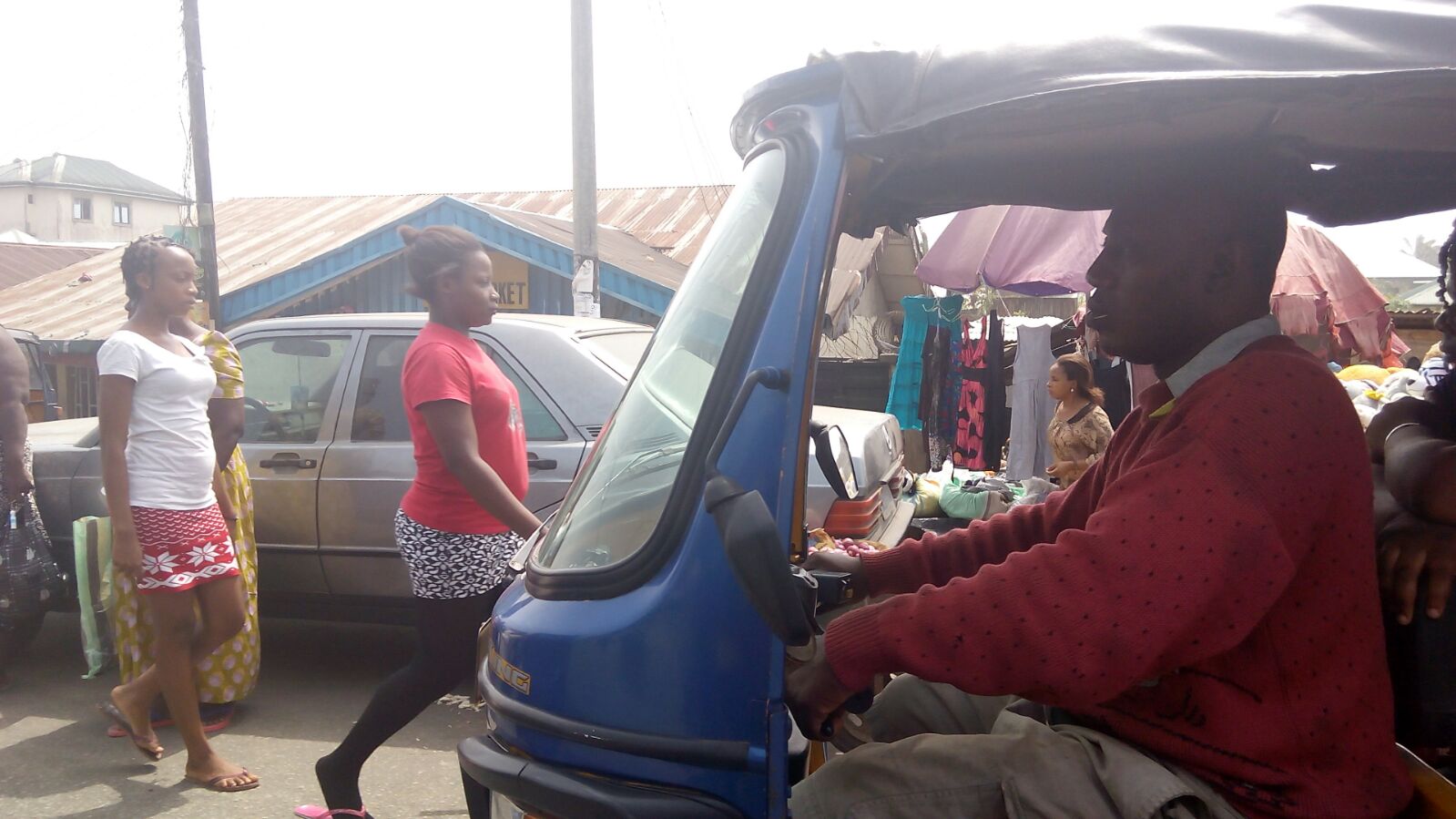
The people want peace. Many are scared of violence and would stop it if they had the powers, opening my eyes to the fact that the masses are victims of the society, irrespective of where they are. Imagine those from Jonathan’s village having to contend with the troubles I don’t face, even though no local government chairman resides in my Lagos Isheri suburb.
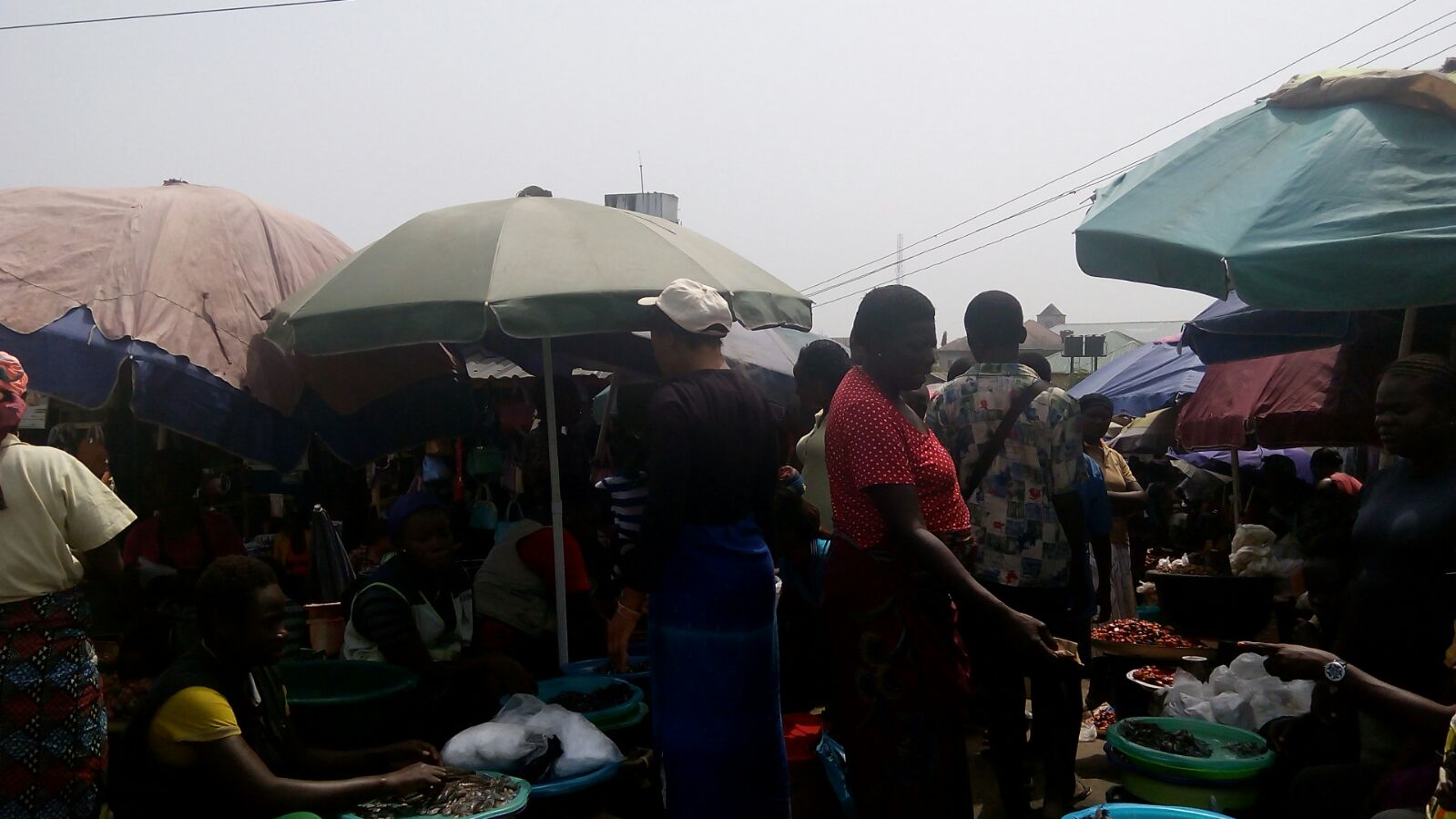
Reminds me of a line I read in Nelson Mandela’s ‘Long Walk to Freedom’. The anti-apartheid hero was in London shortly after he regained freedom and his observations in a backward community made him reach the conclusion that poor people behaved alike, irrespective of their location.
In other words, the downtrodden in Daura, Otuoke or Ibogun might be confronted with similar fate. How sad!
1 comments

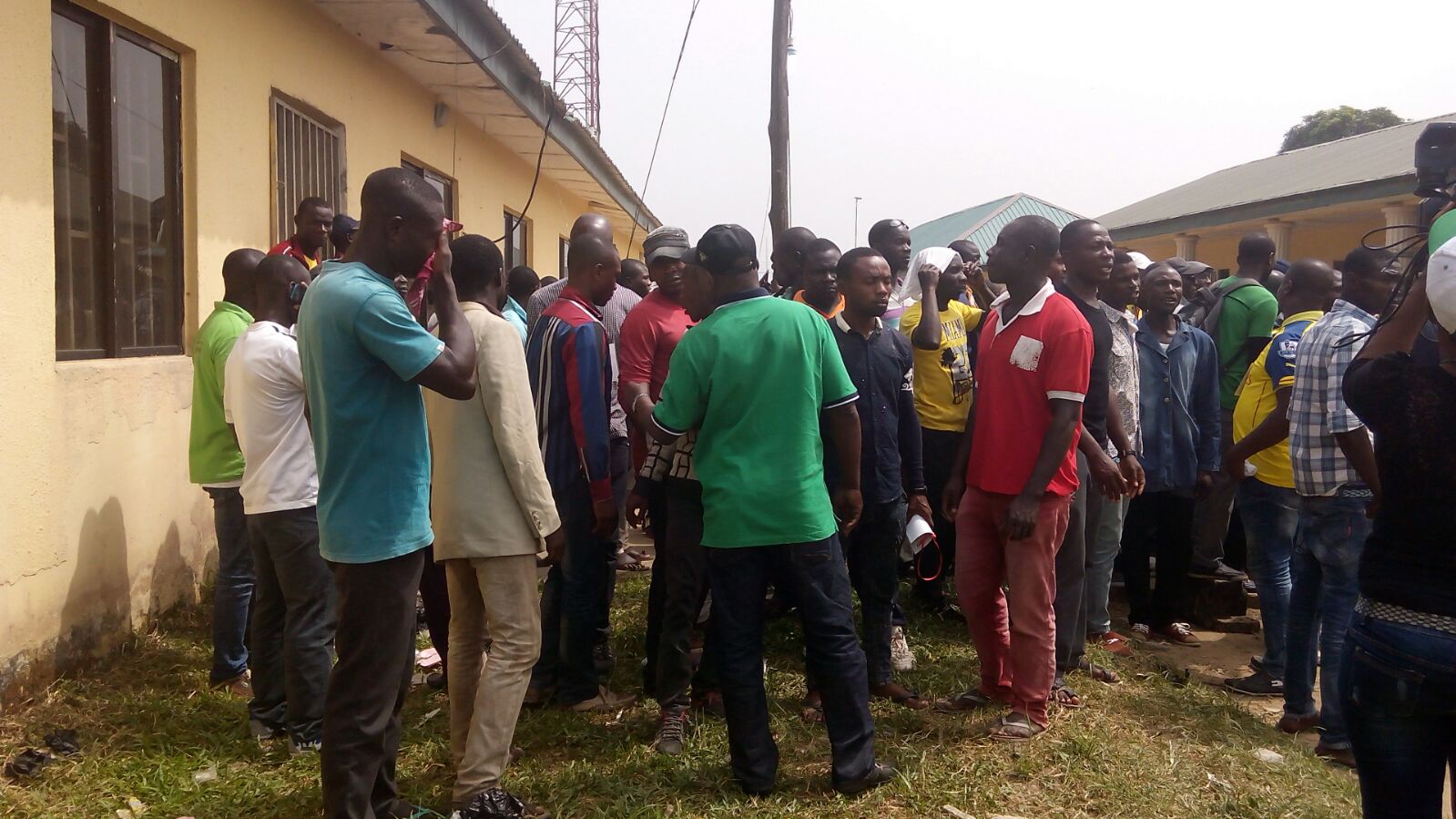
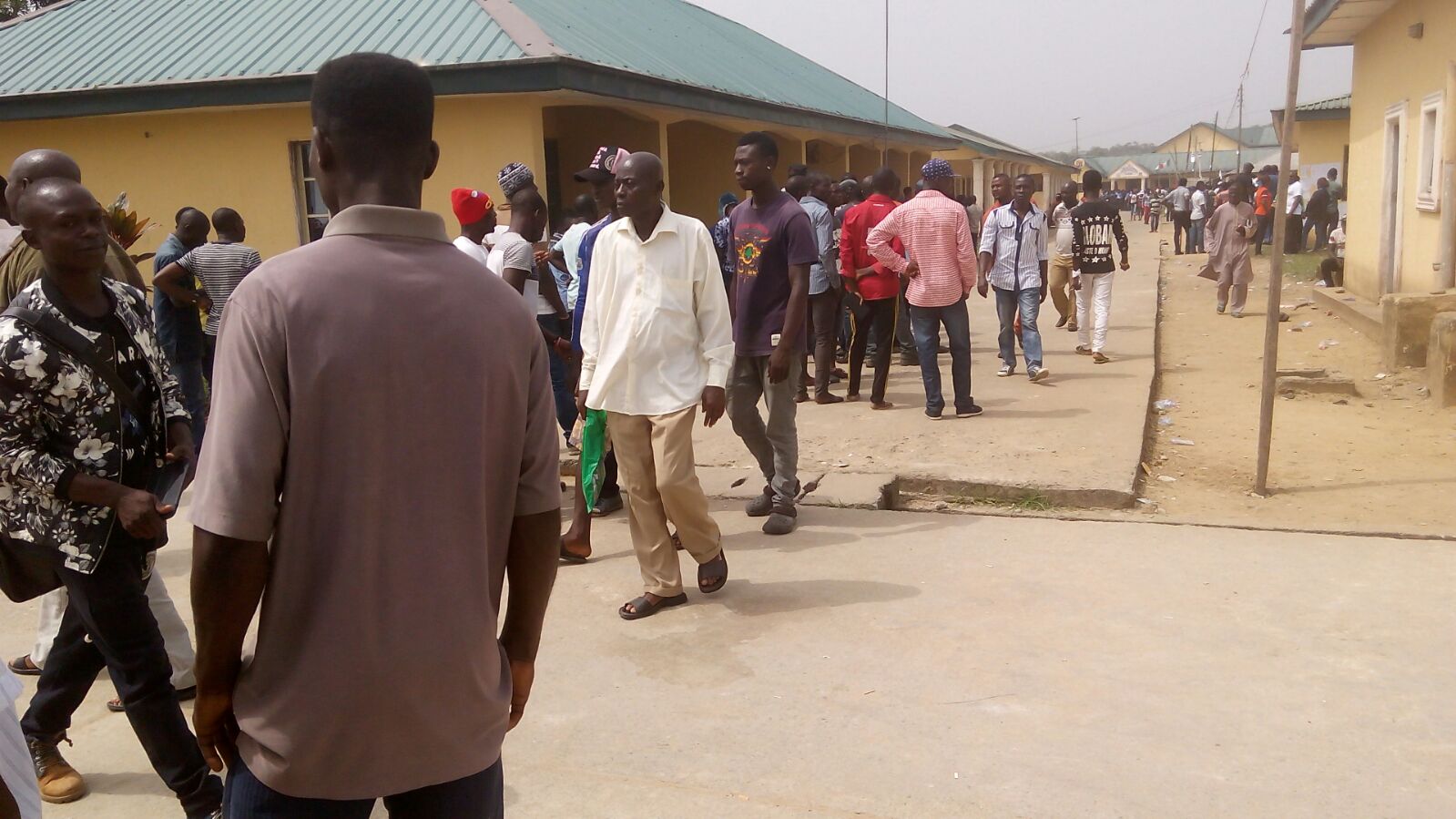
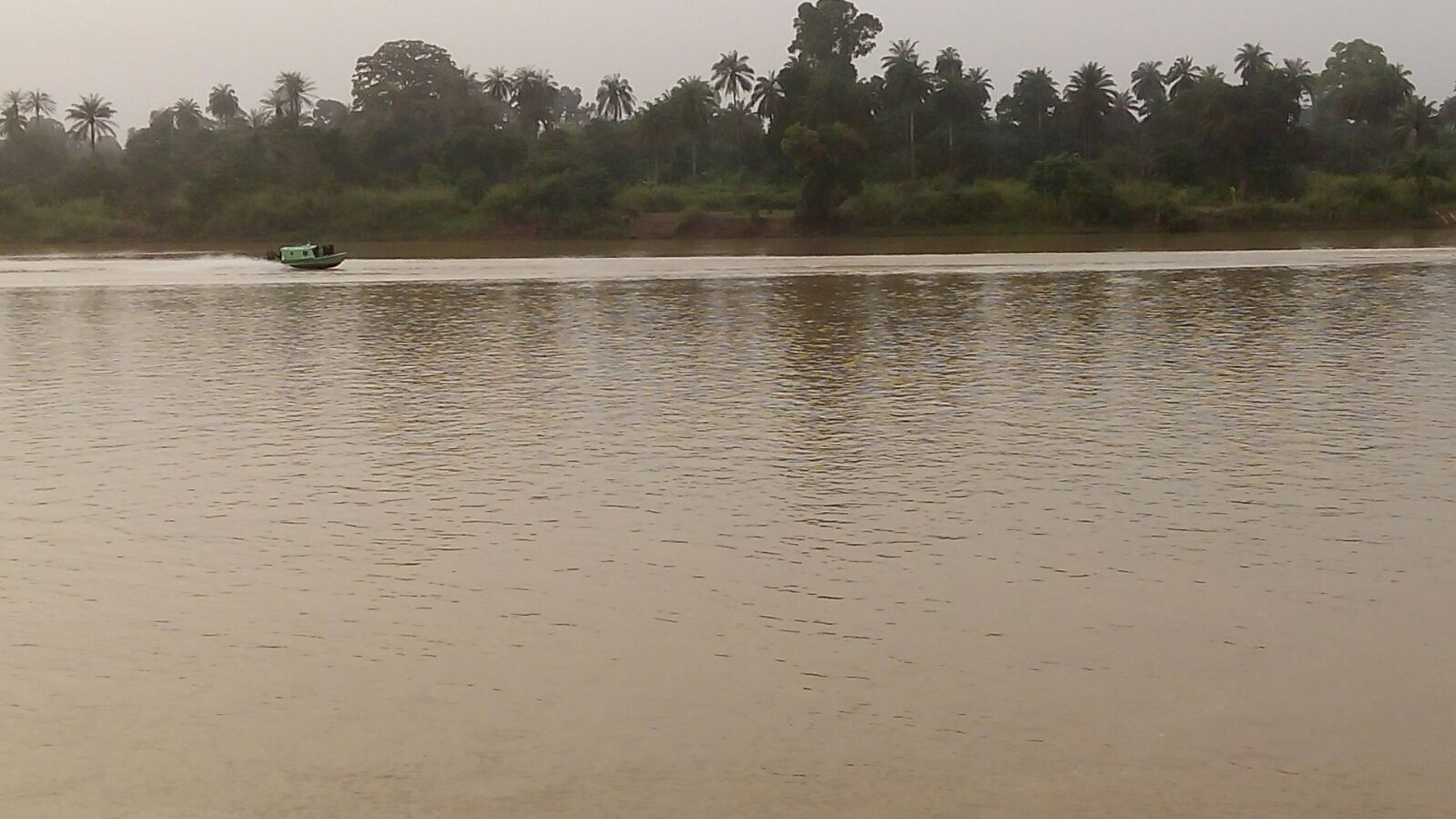
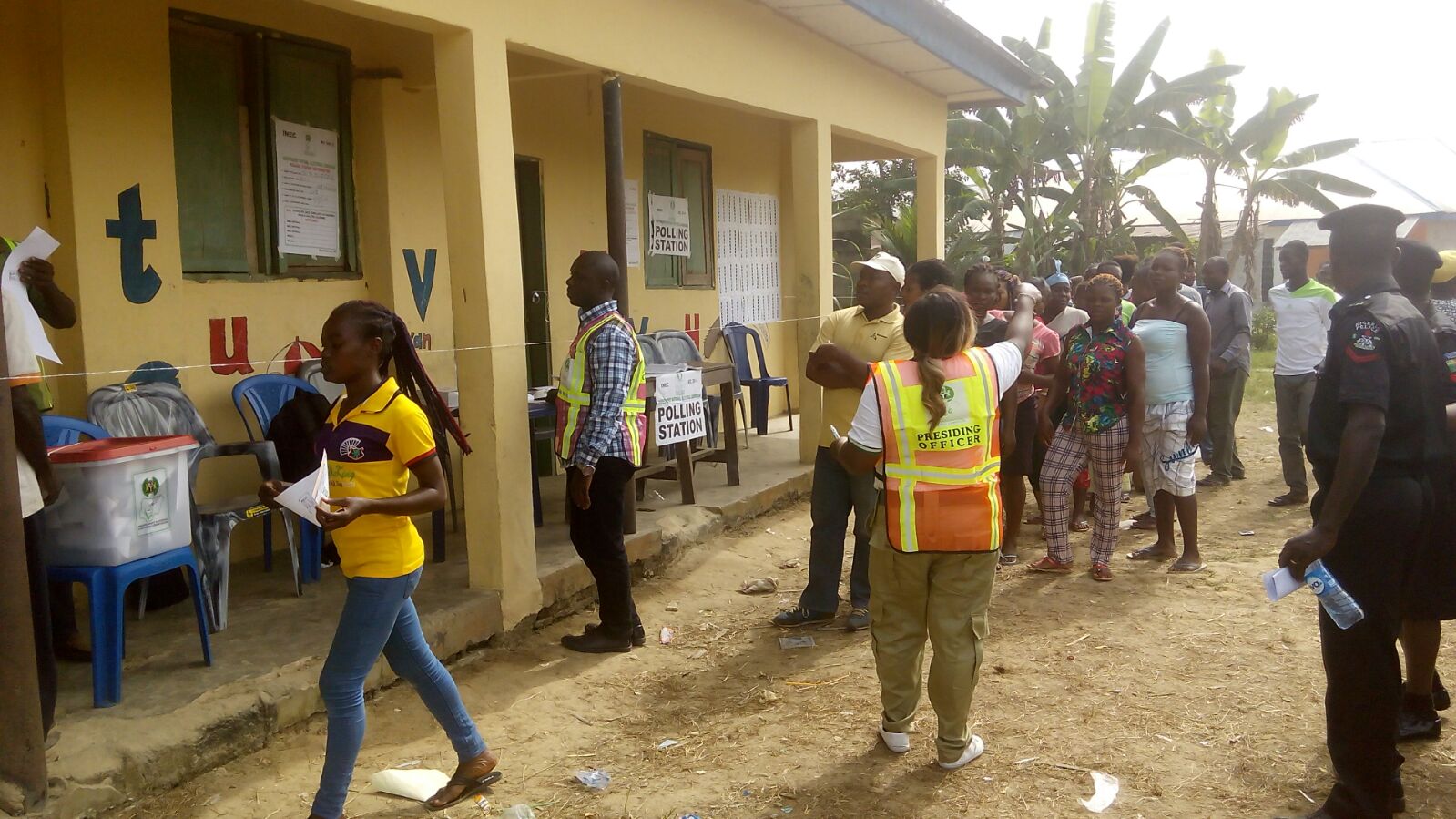
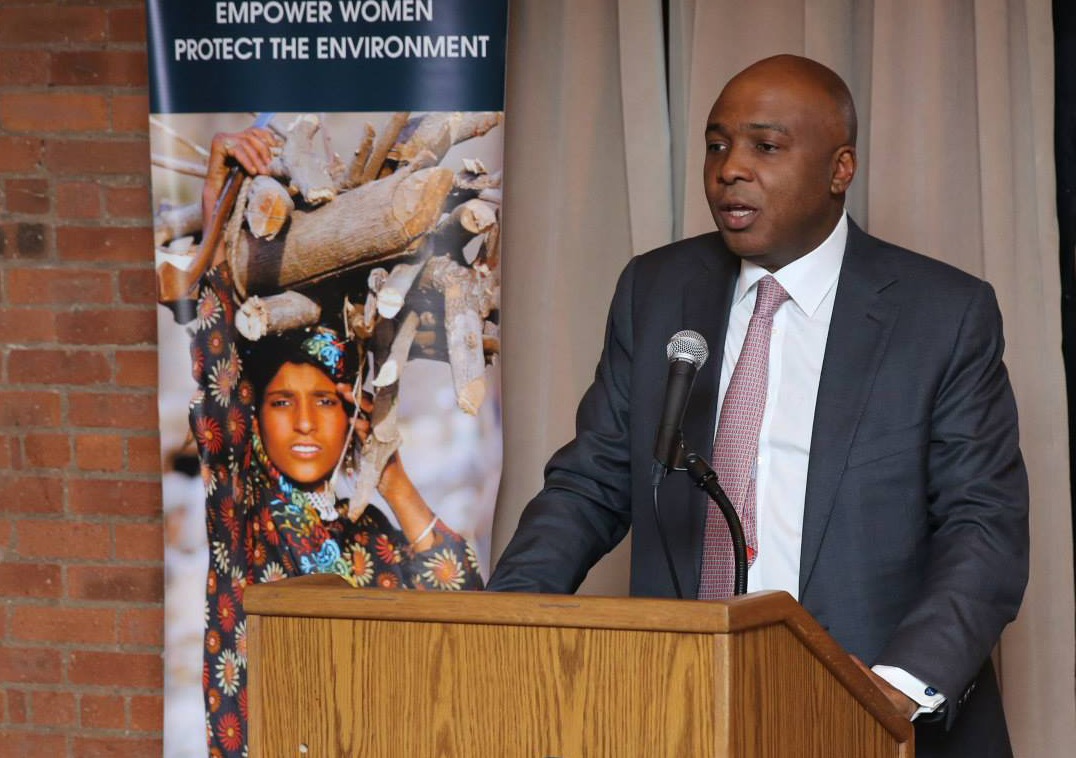
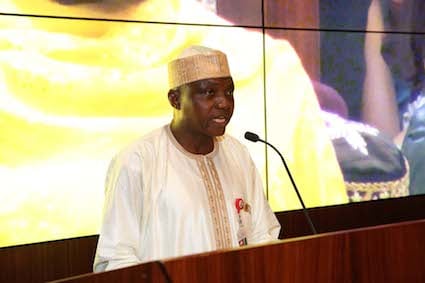
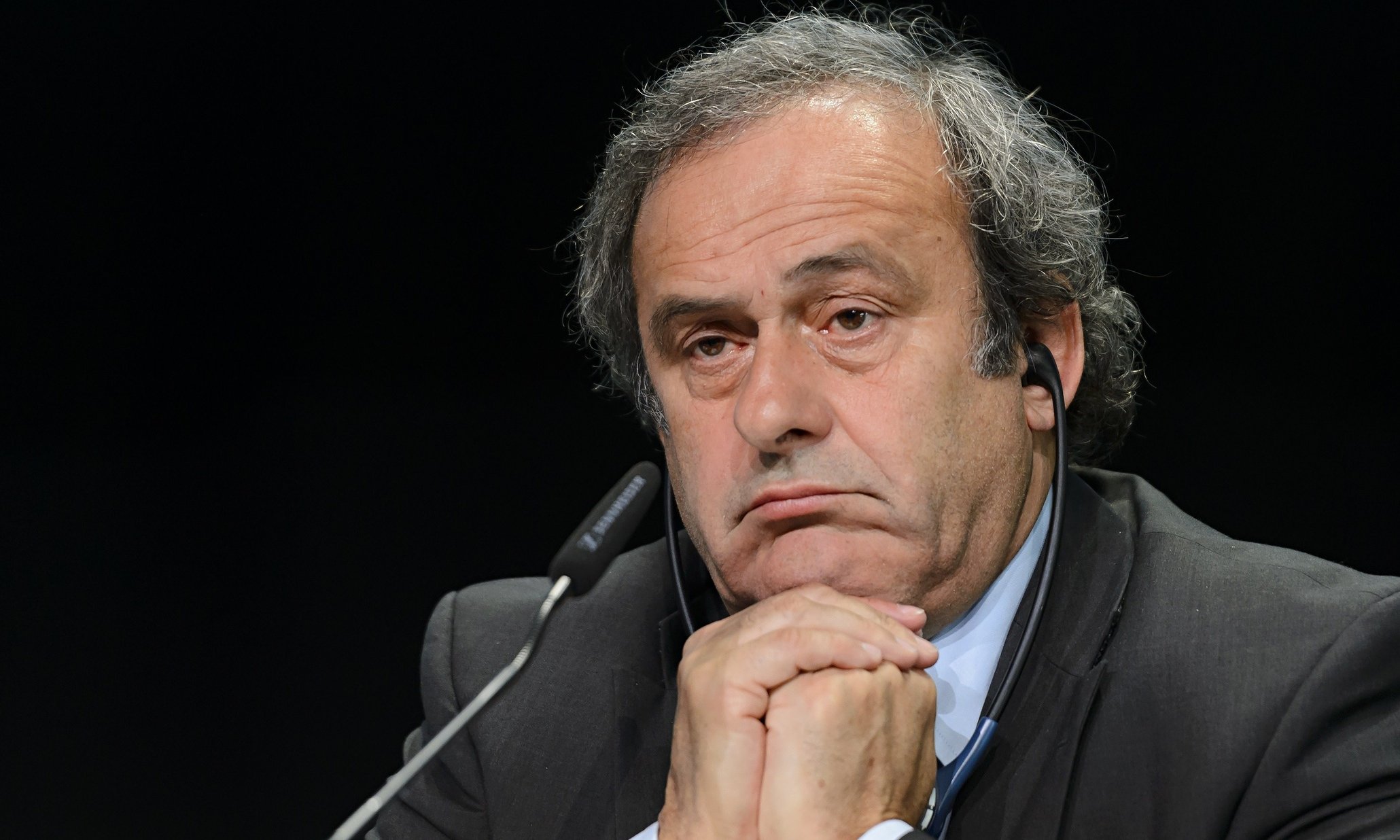
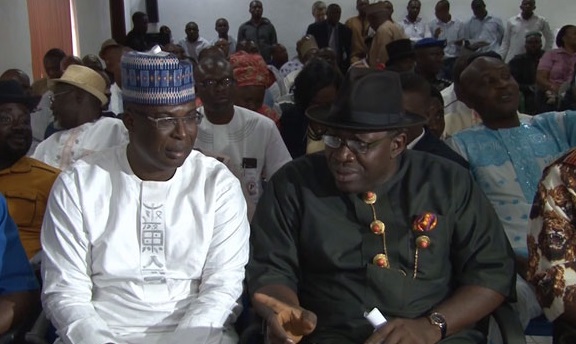
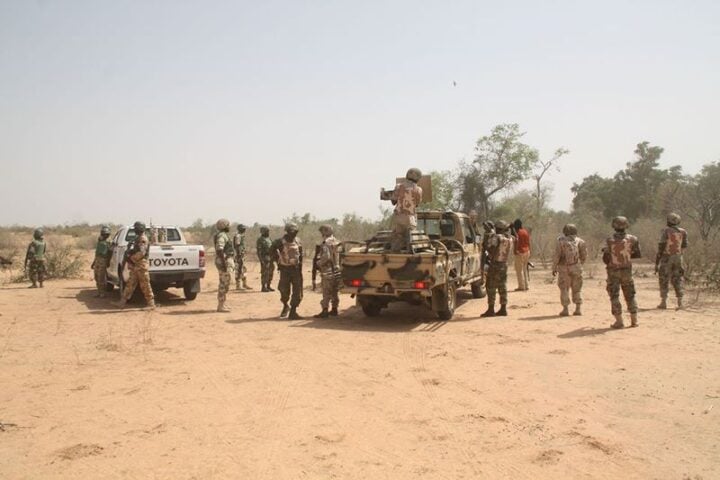
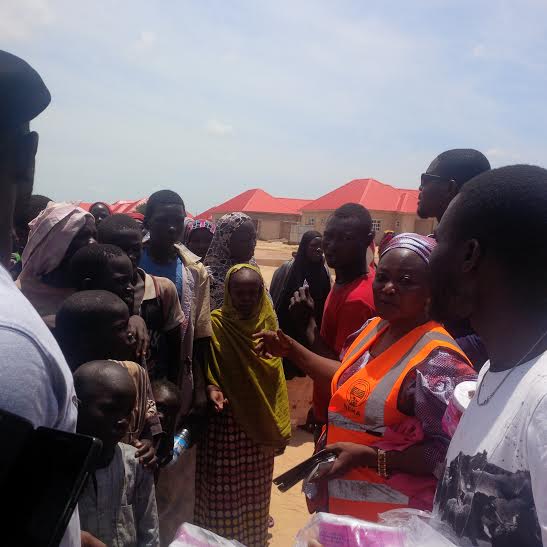
Very good and balanced report. This goes to show that the common enemy this country are the politicians. The people behind every crisis in this country are the politicians, the Northerners, the Yorubas, the i
Igbos, Tivs, Efiks, Jaws etc suspect themselves as a result of divid and rule attitude of our politicians… May save God Nigeria.